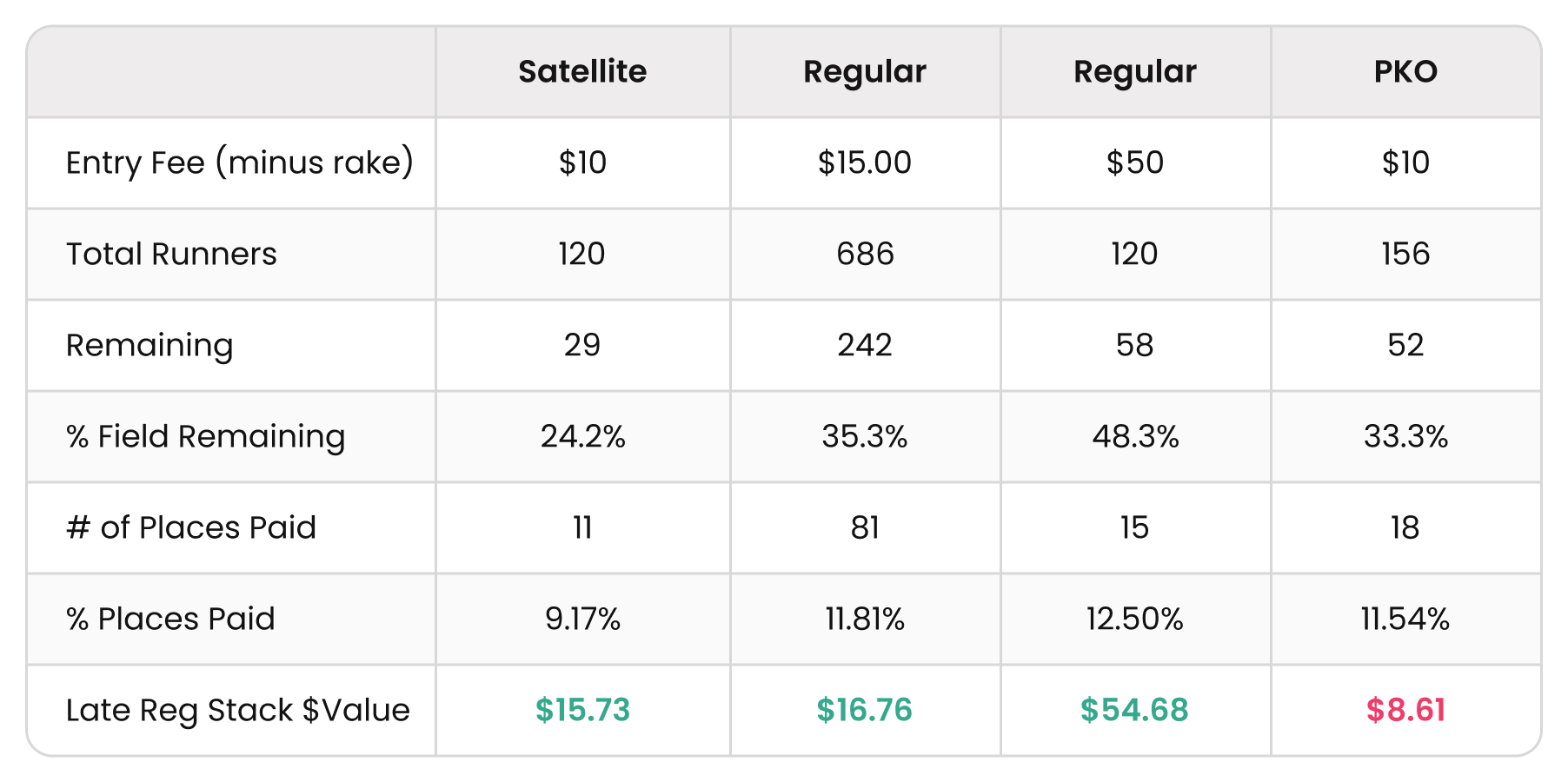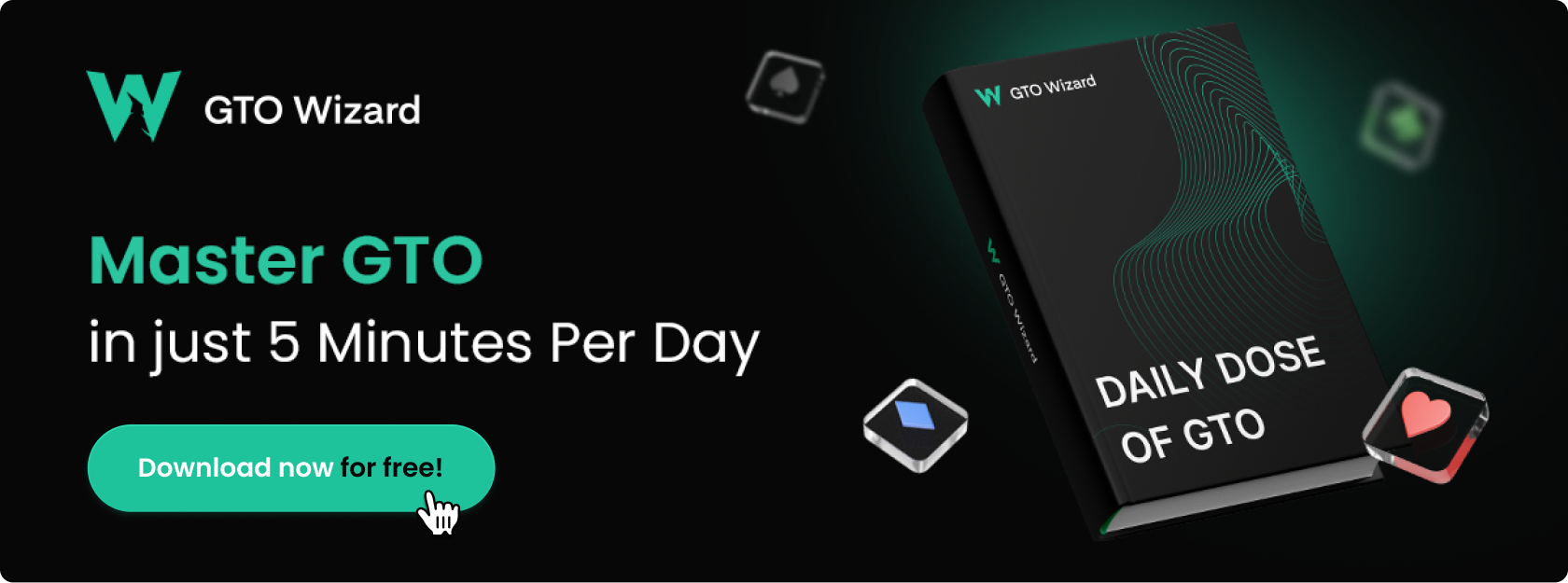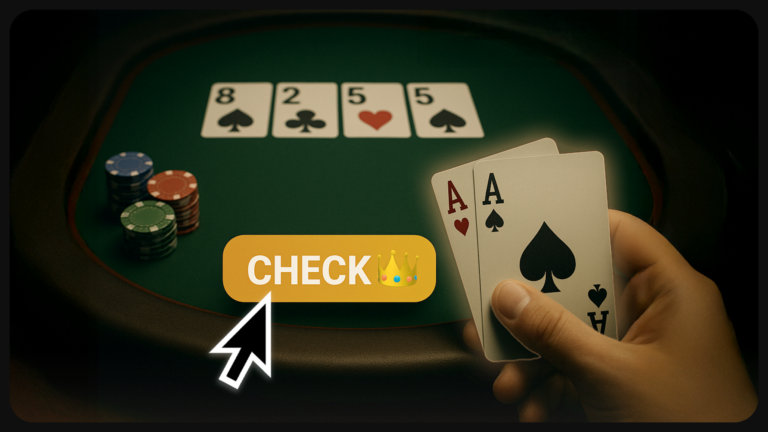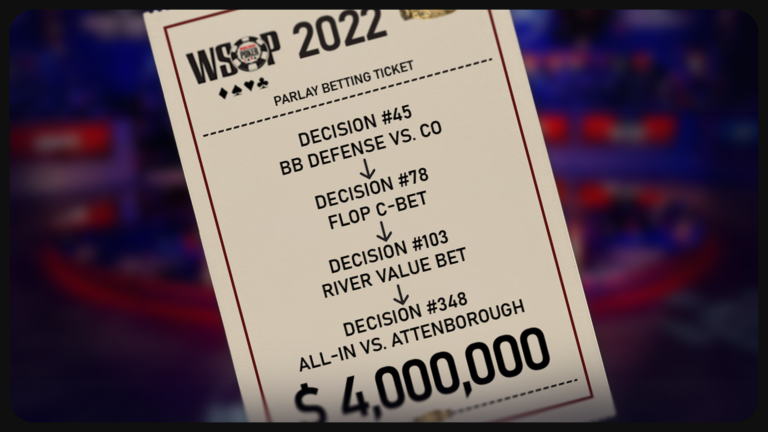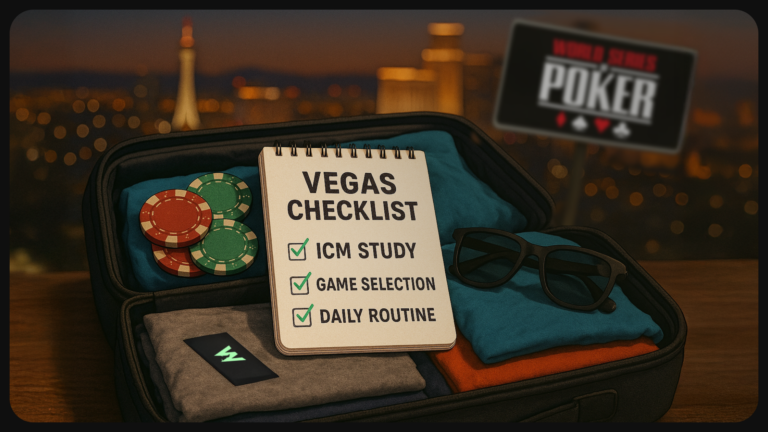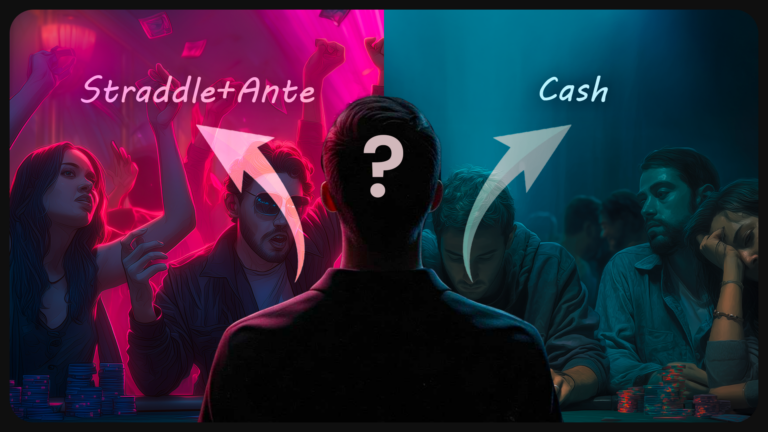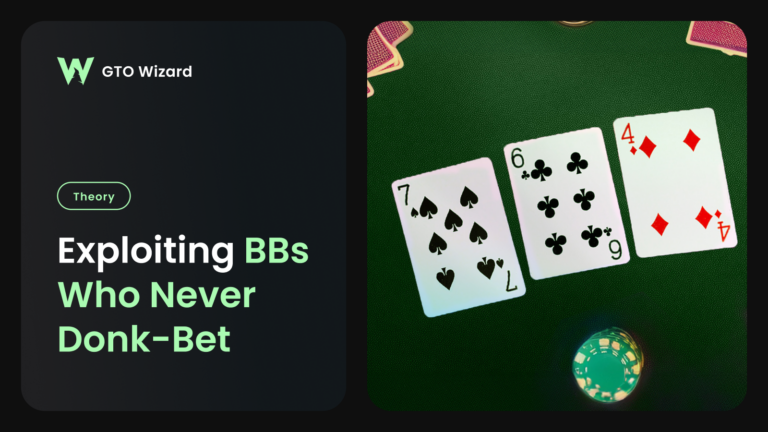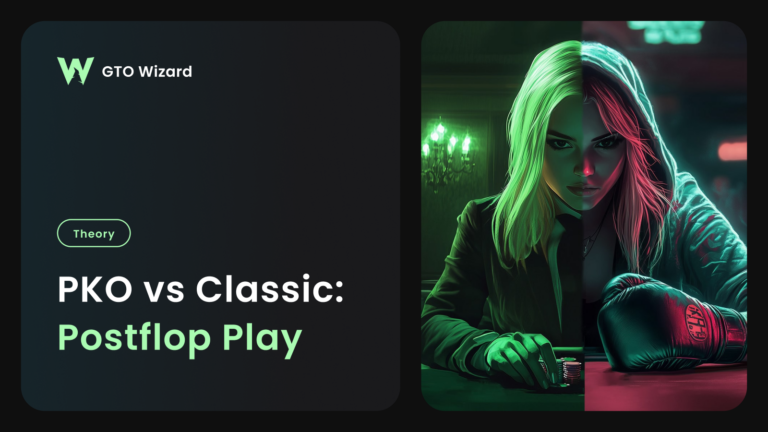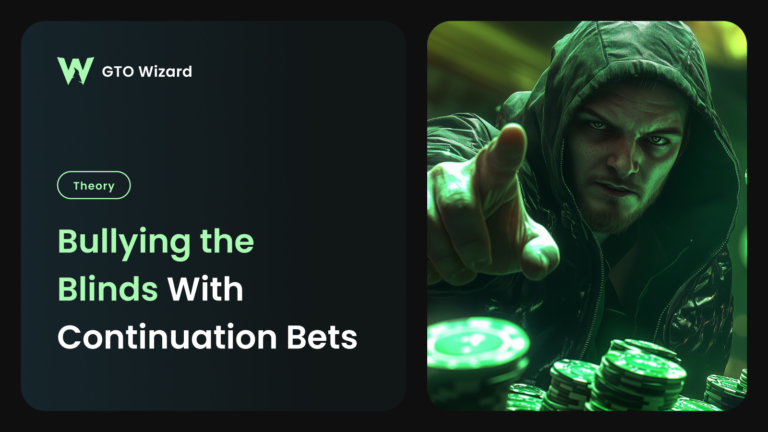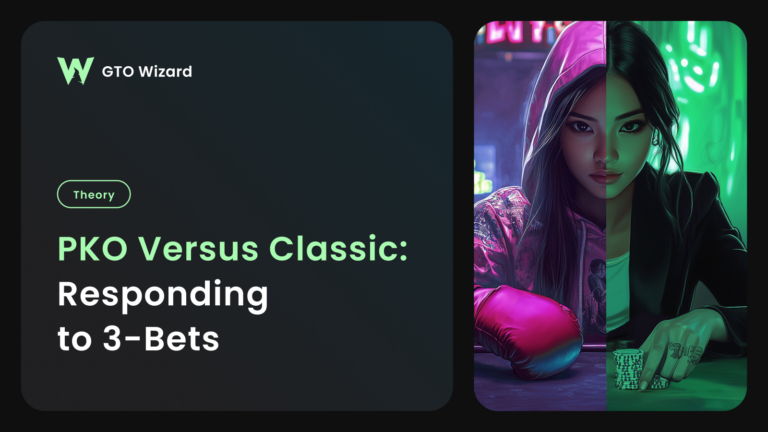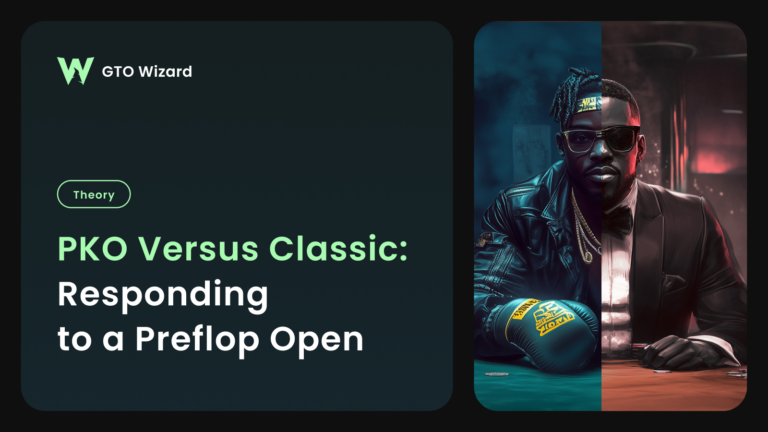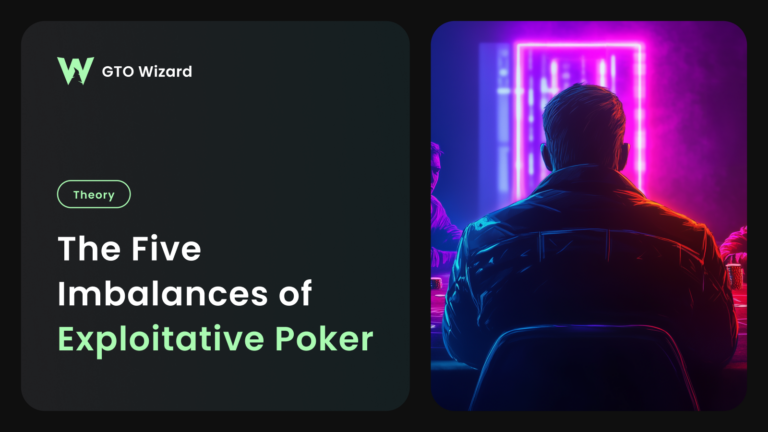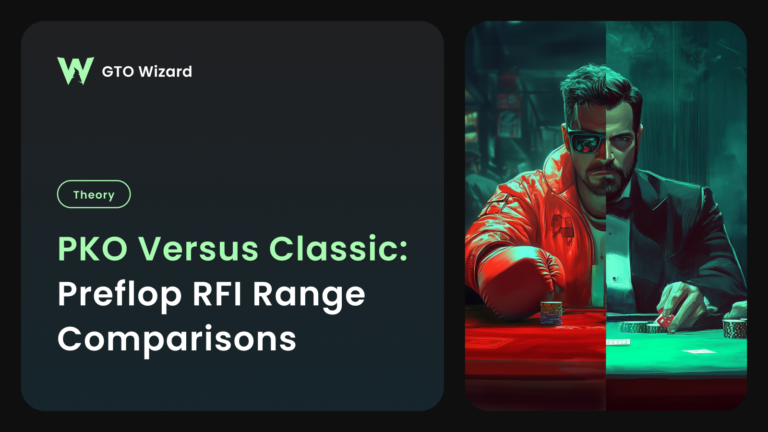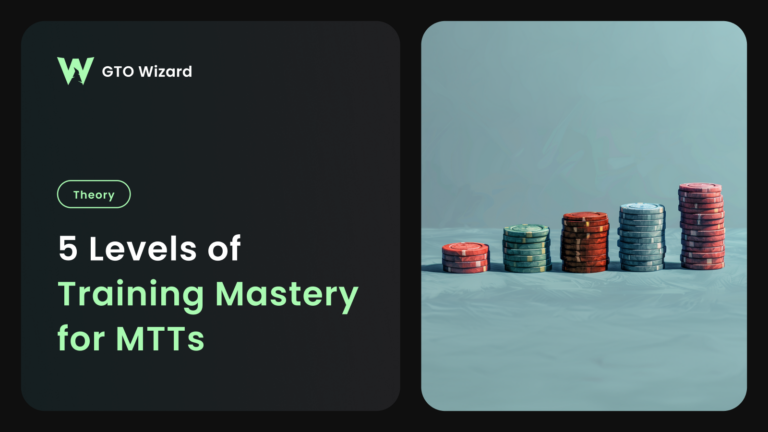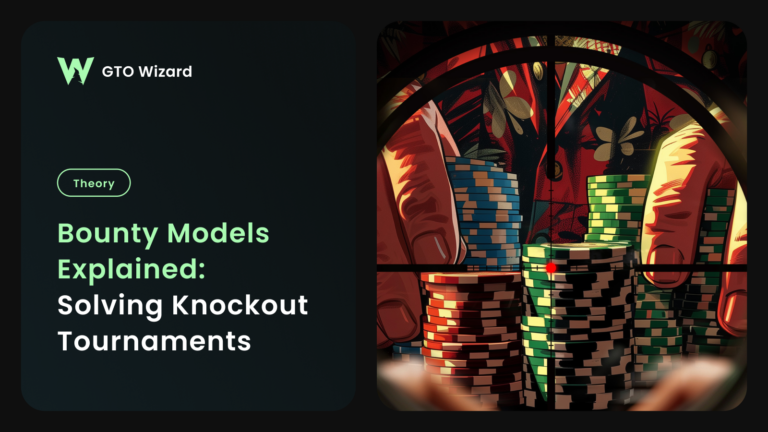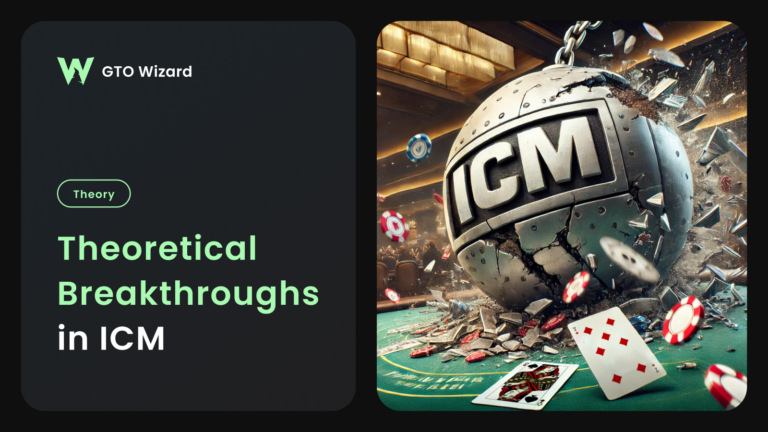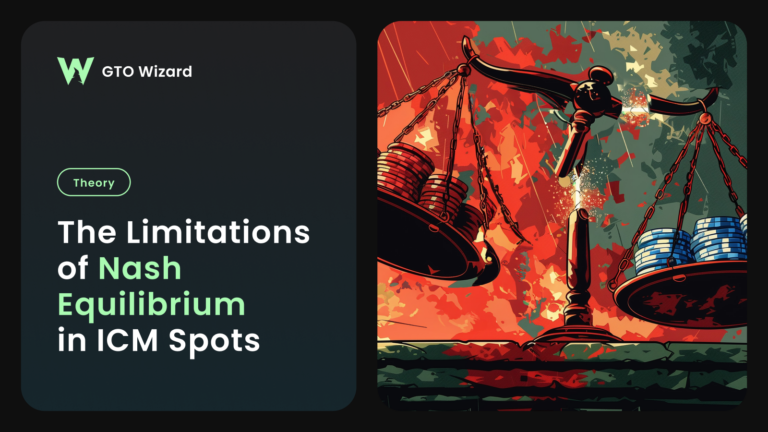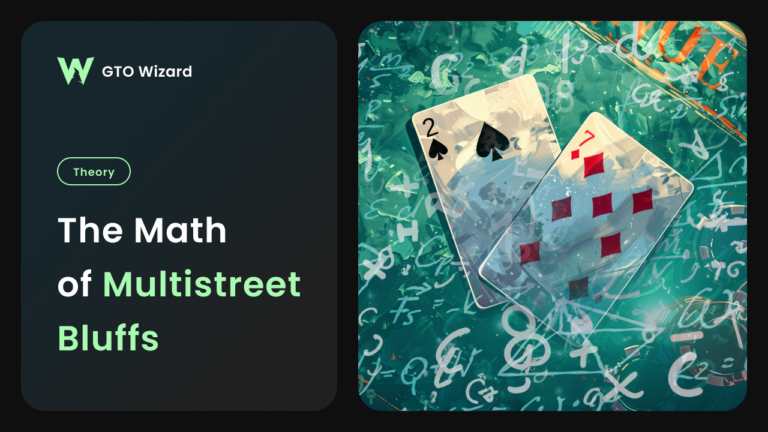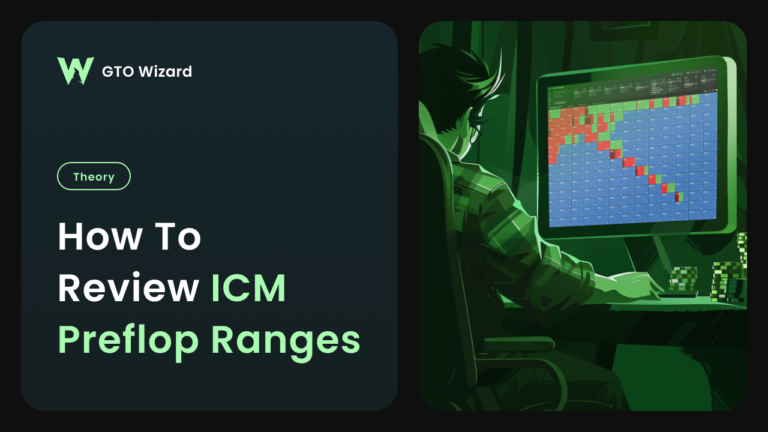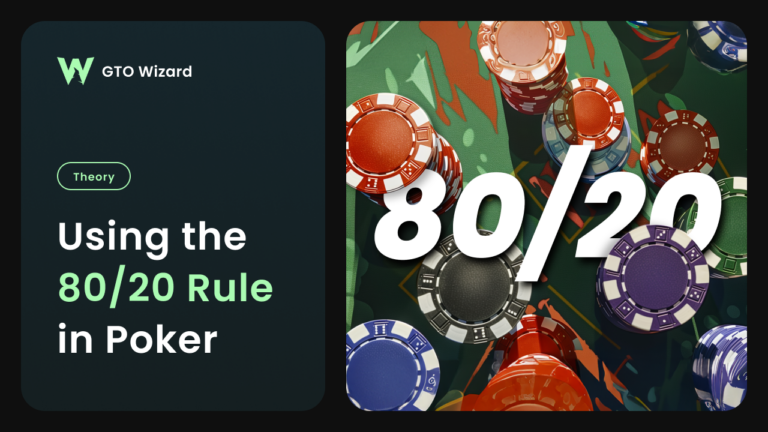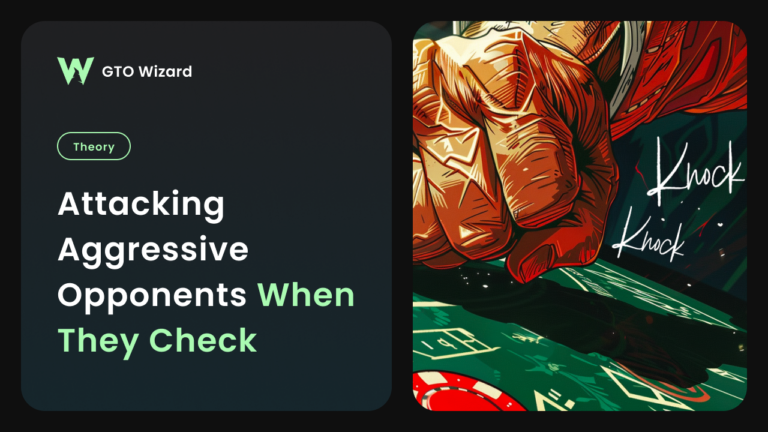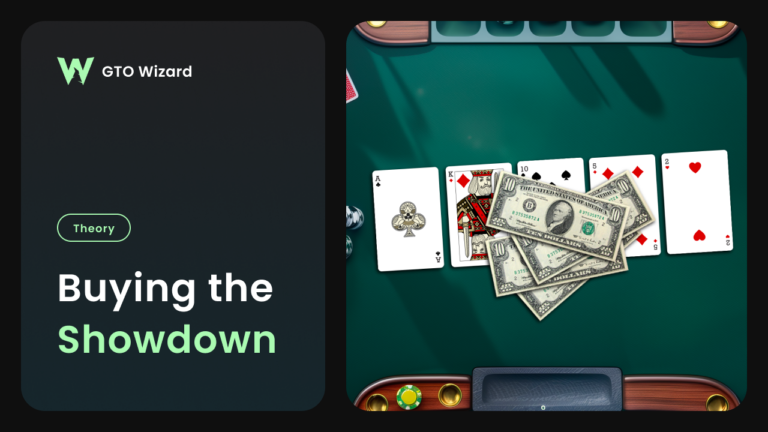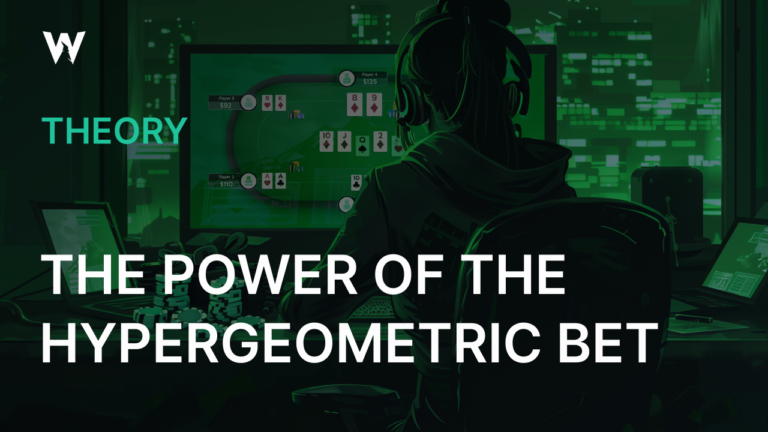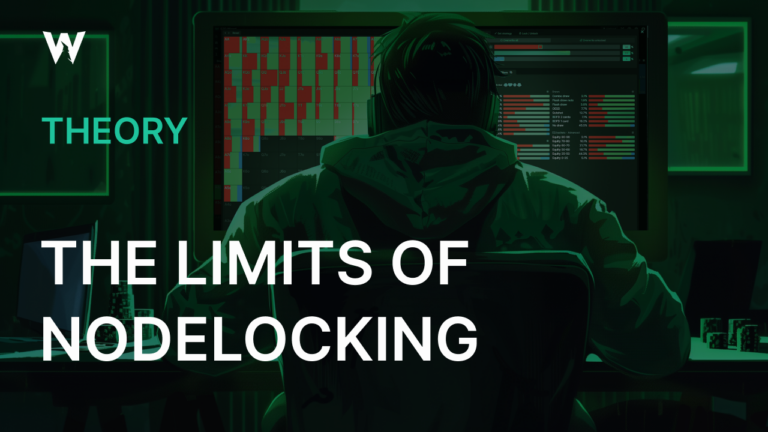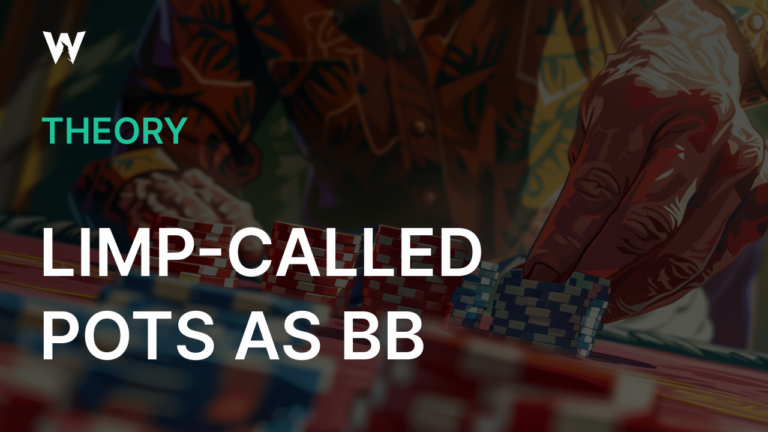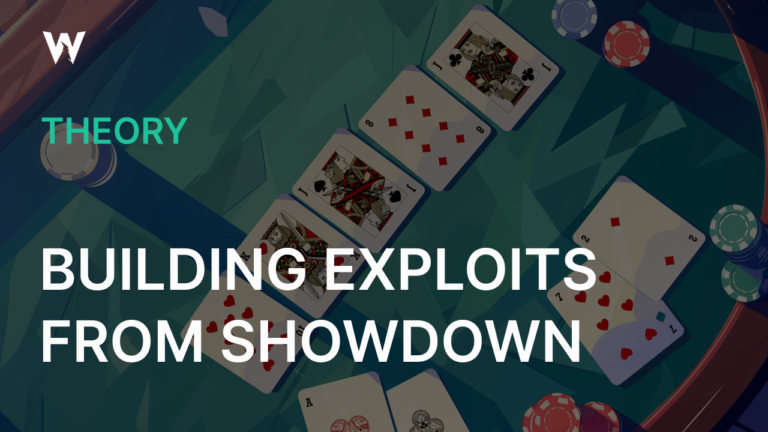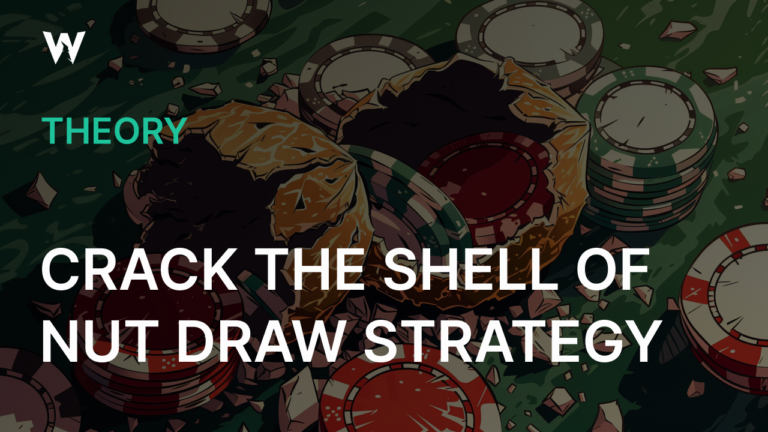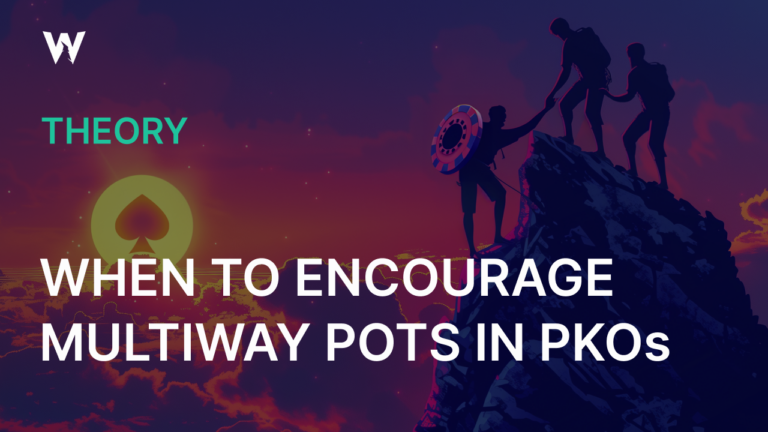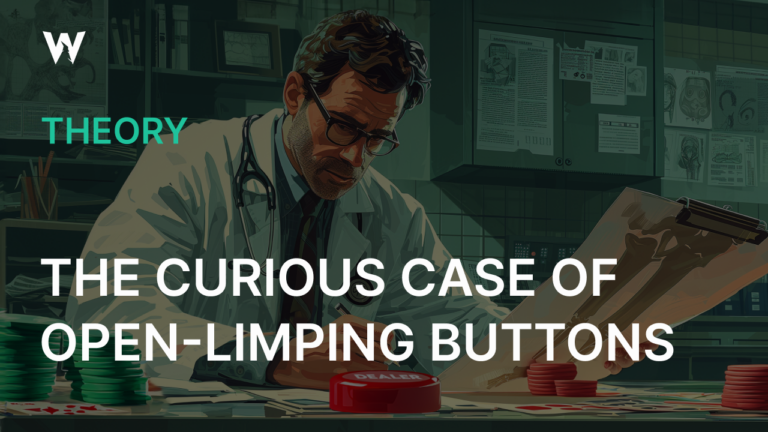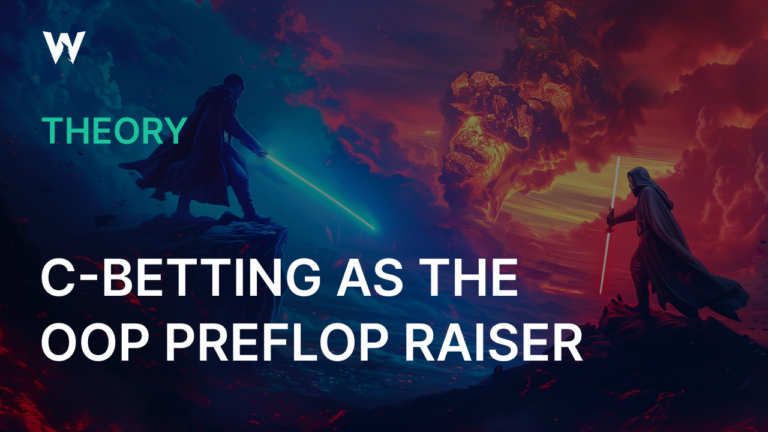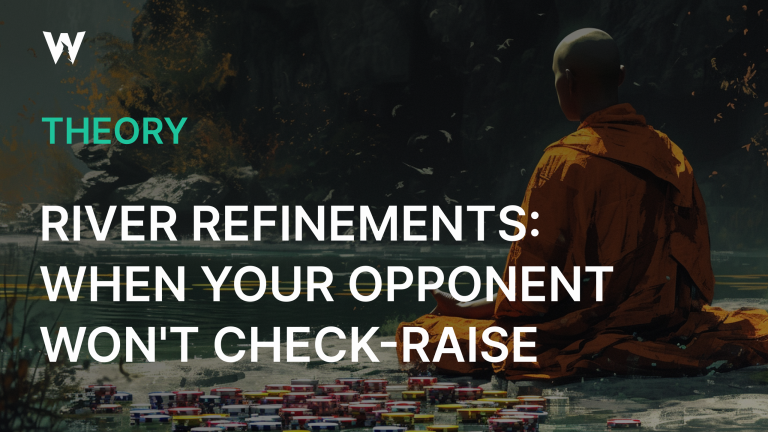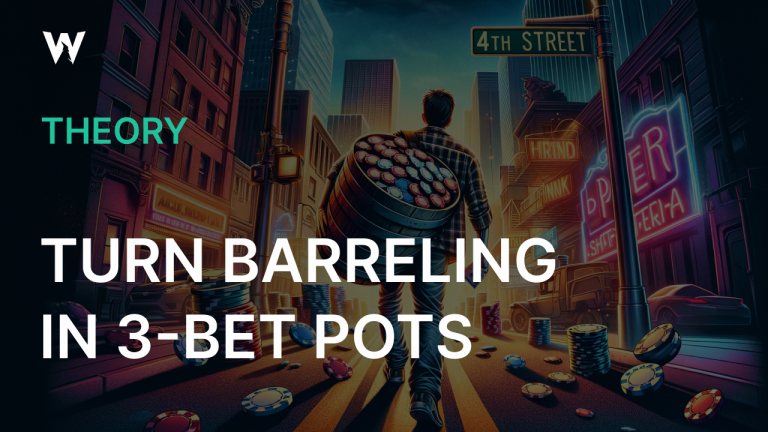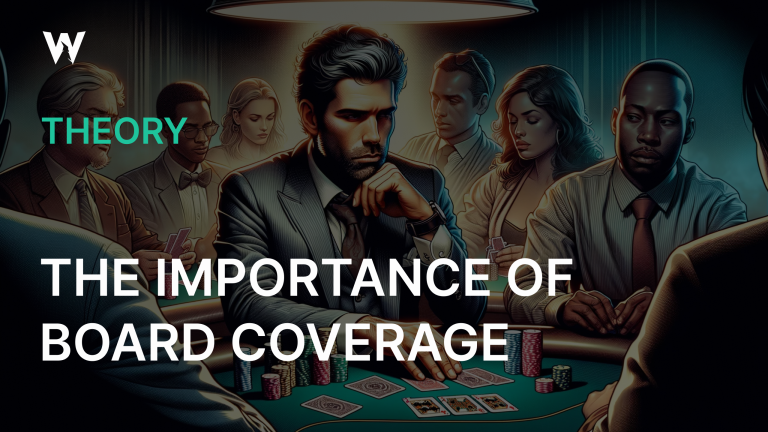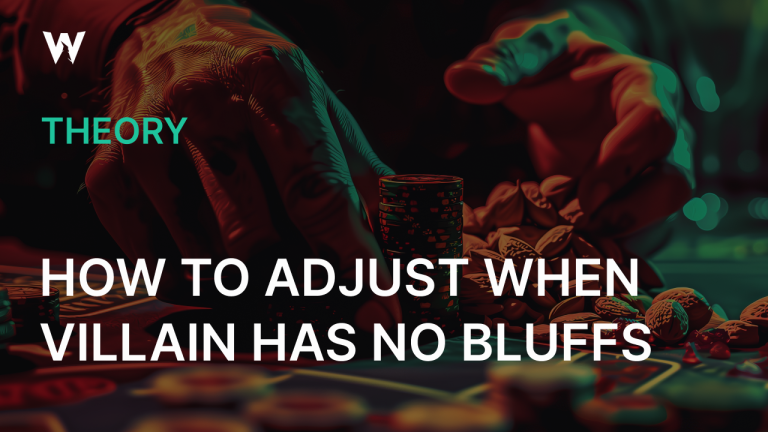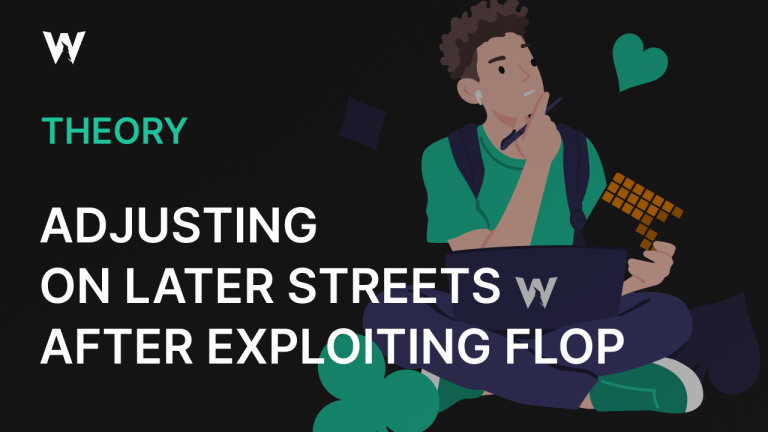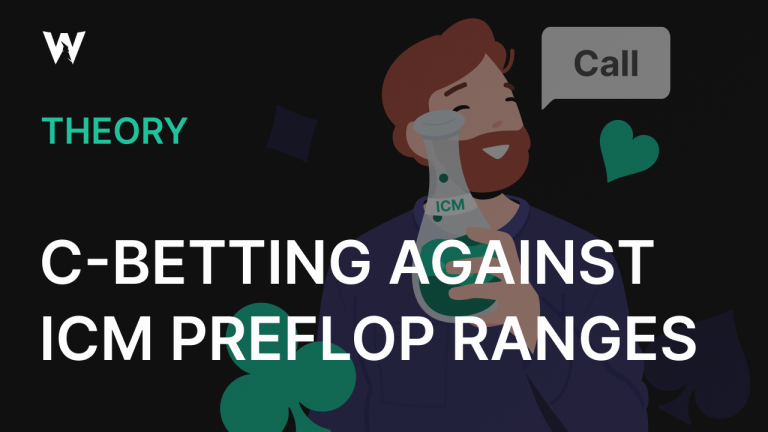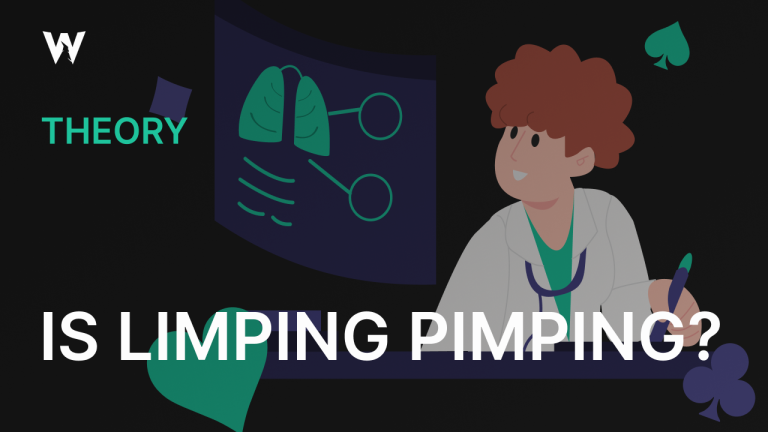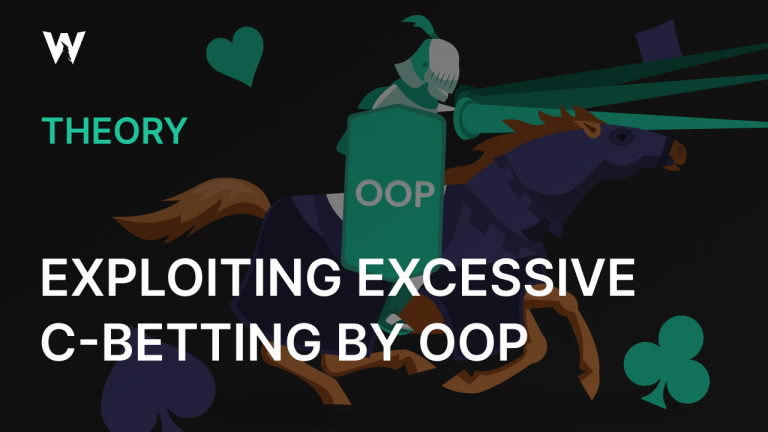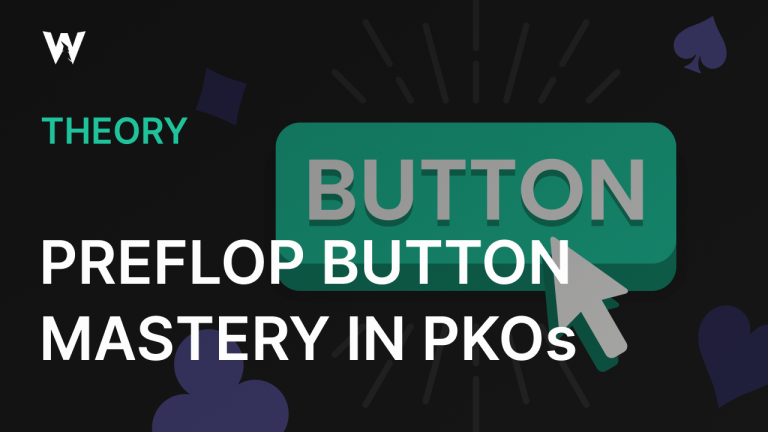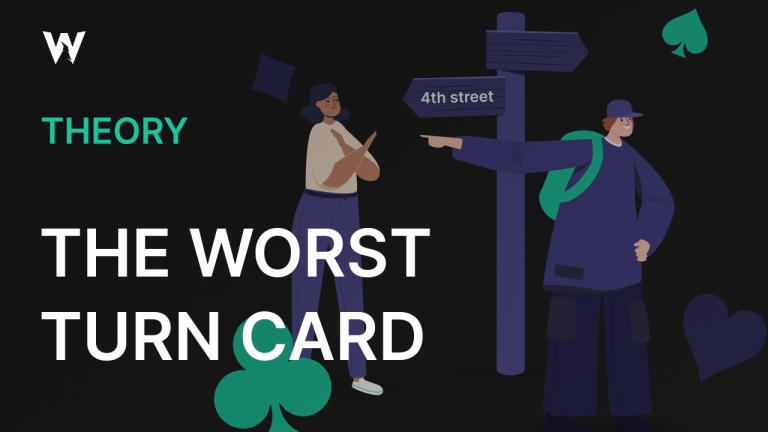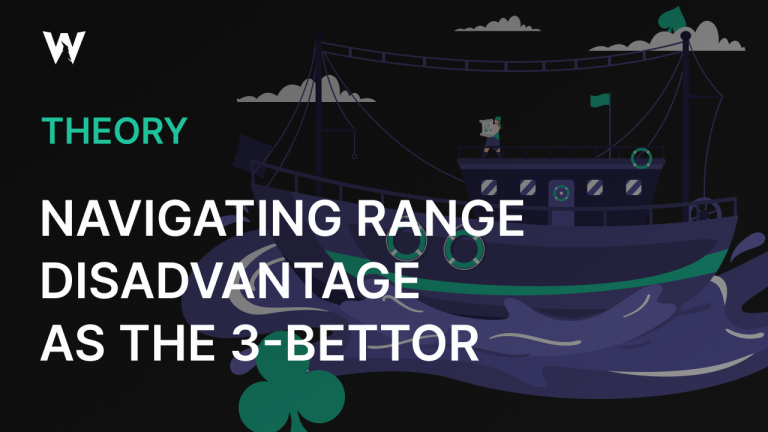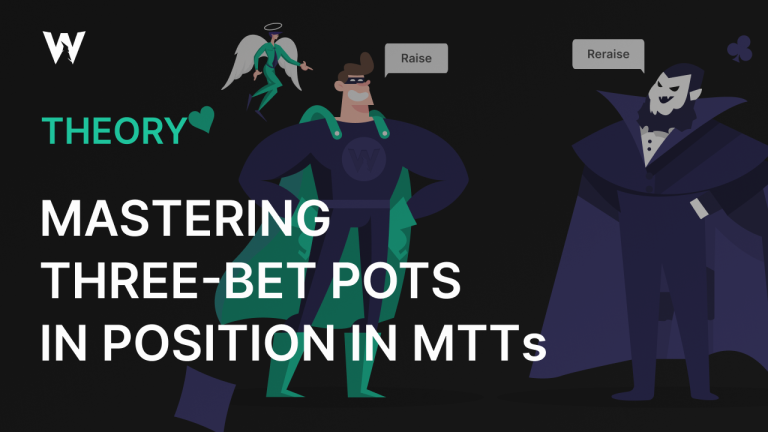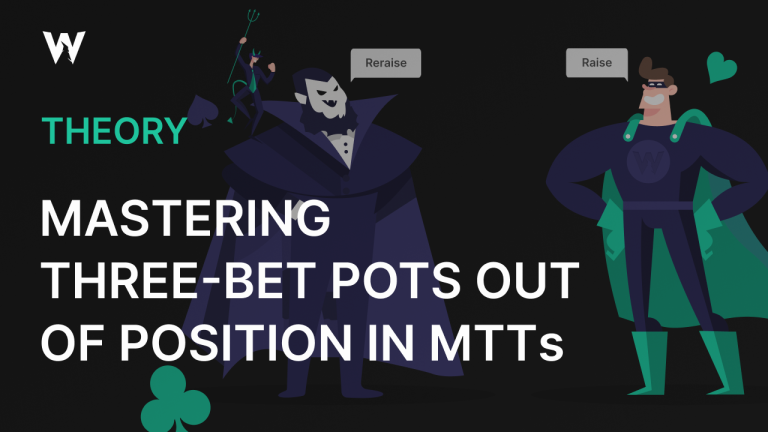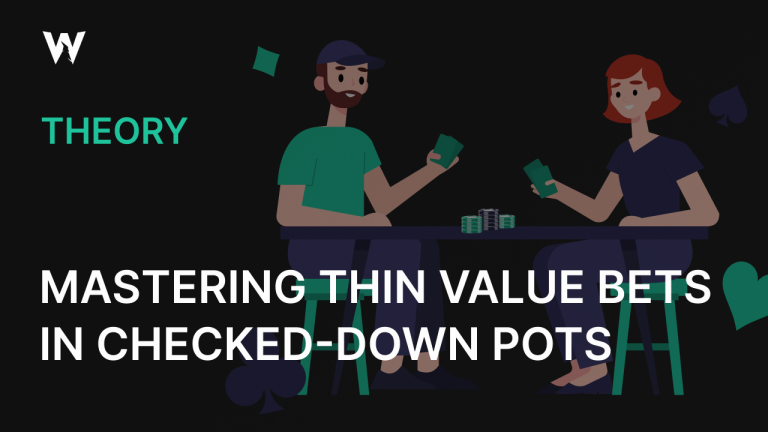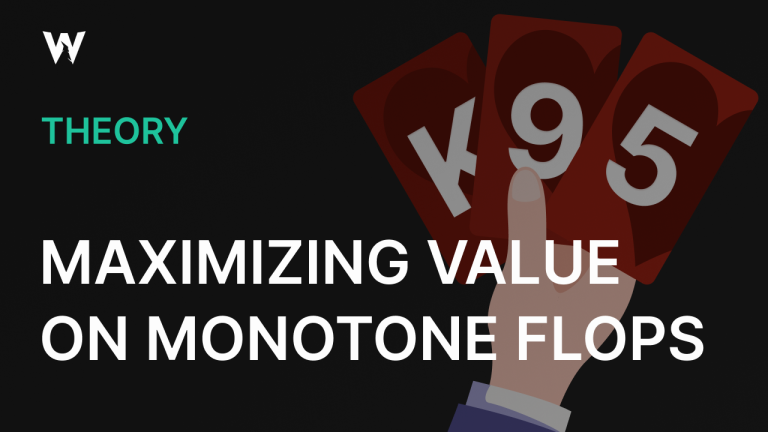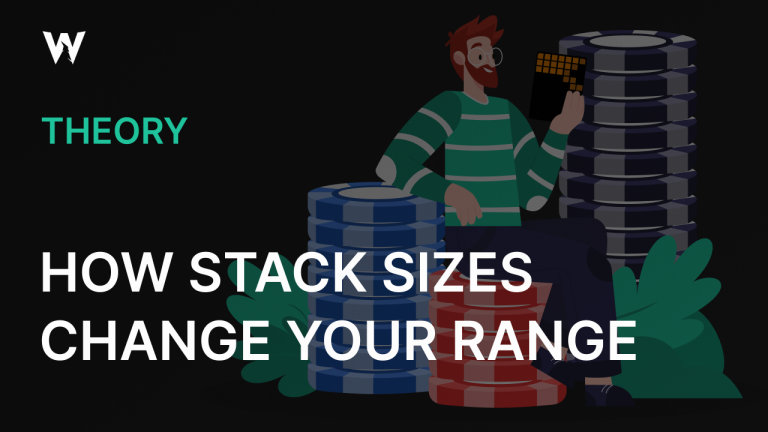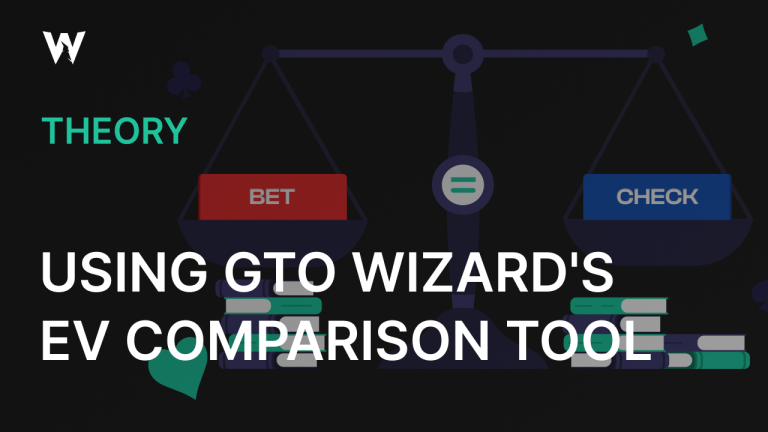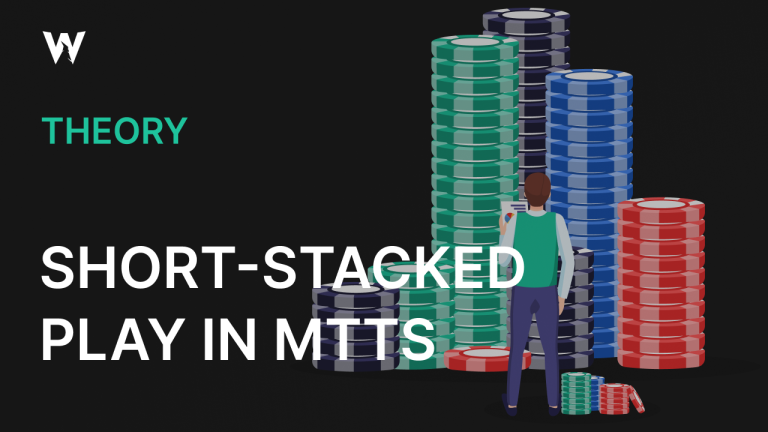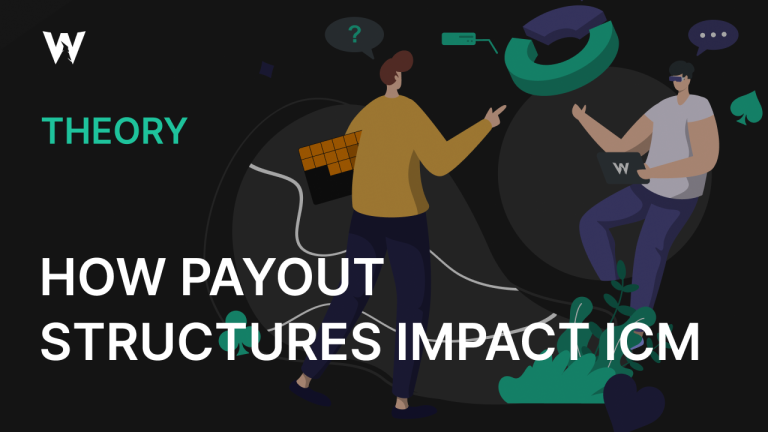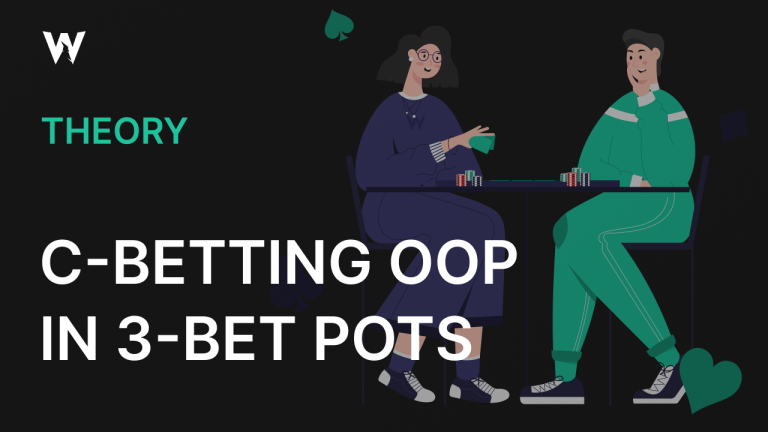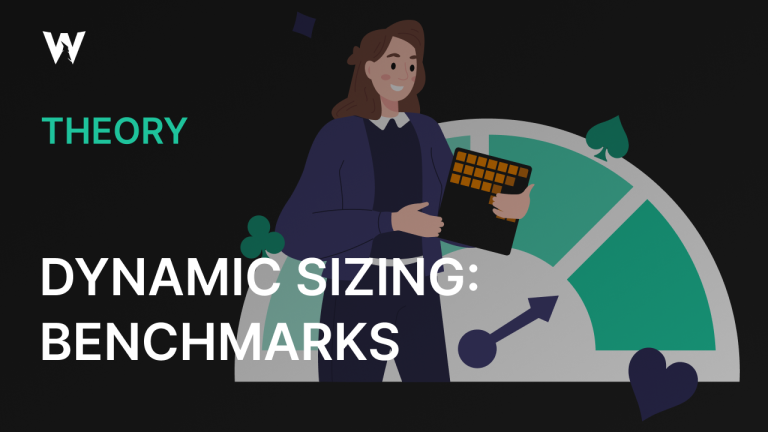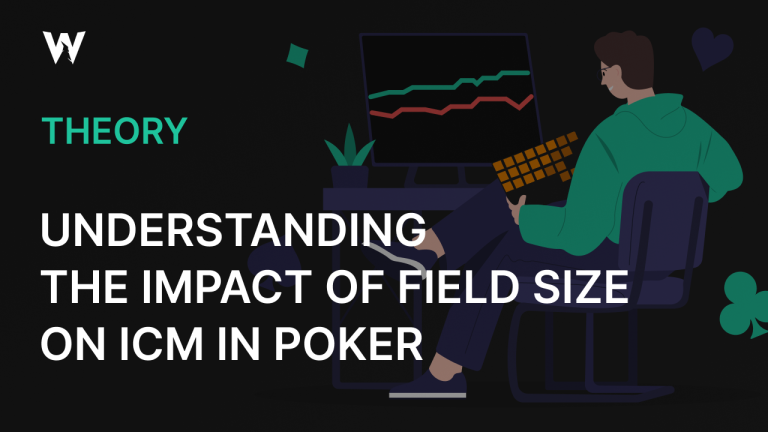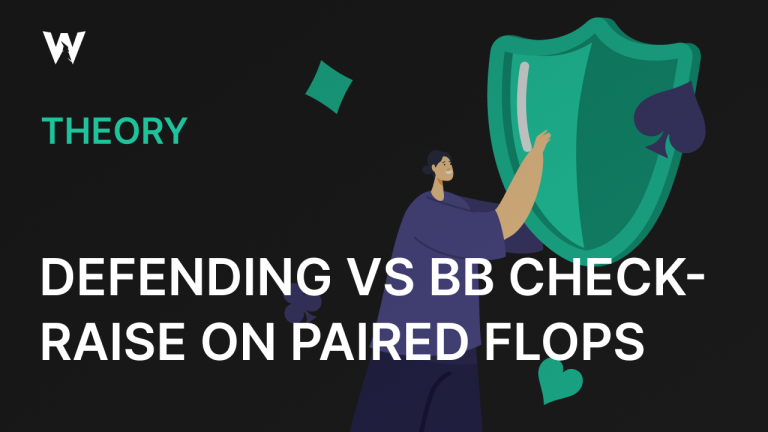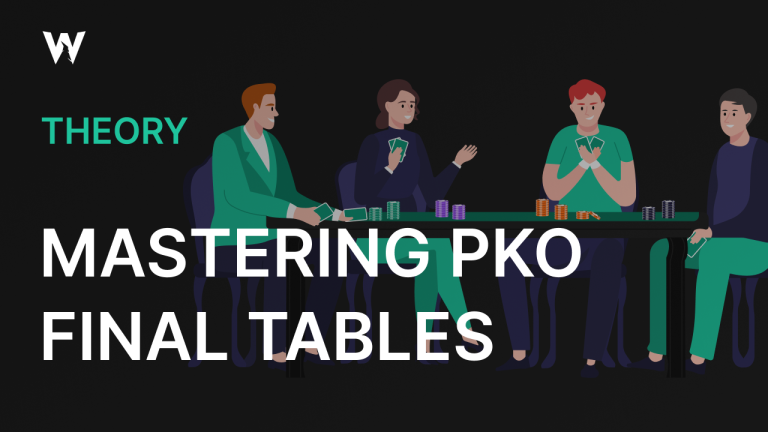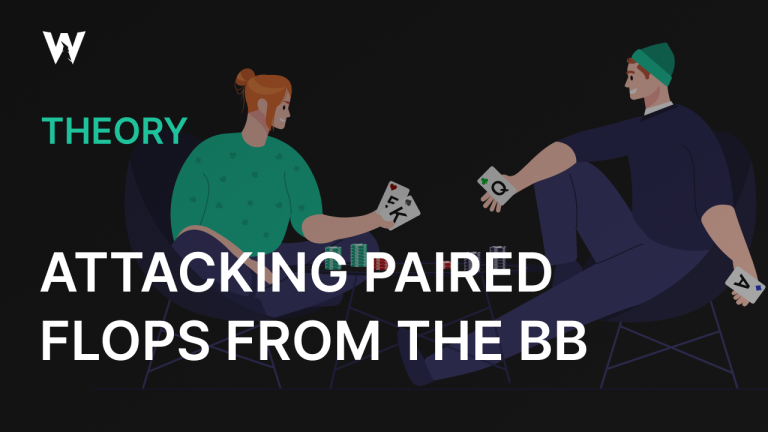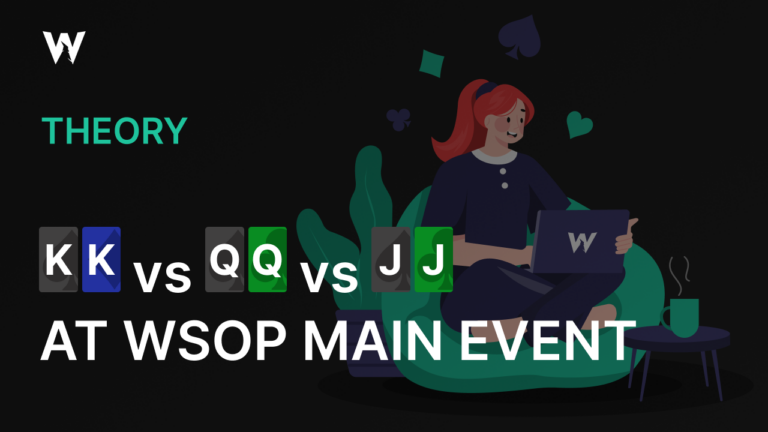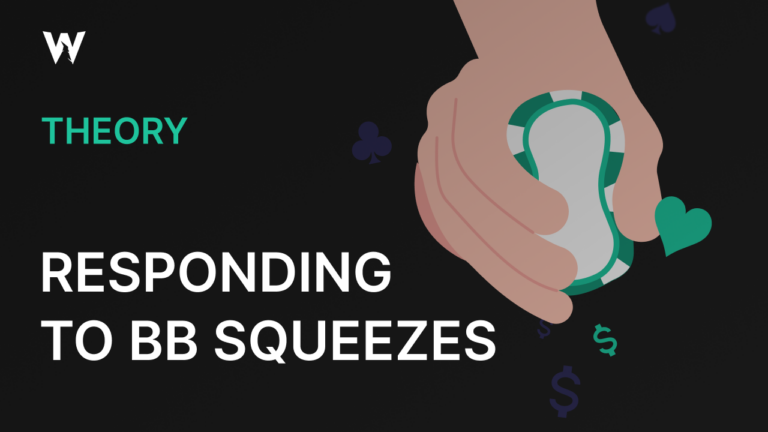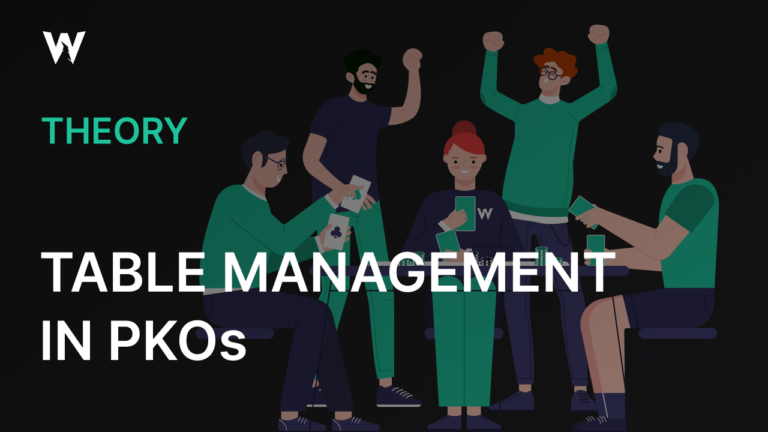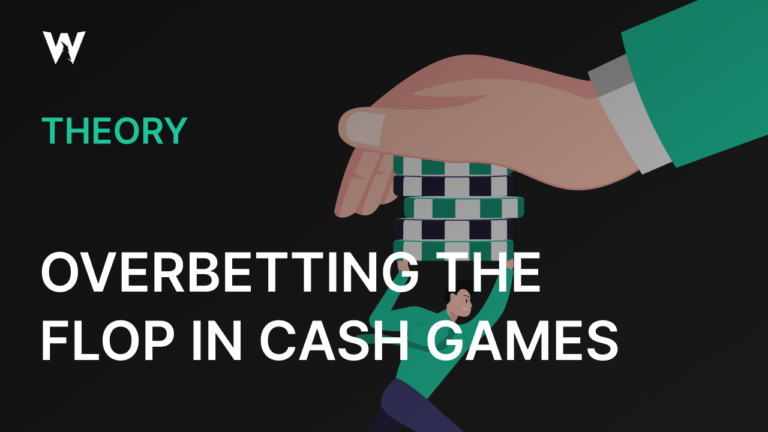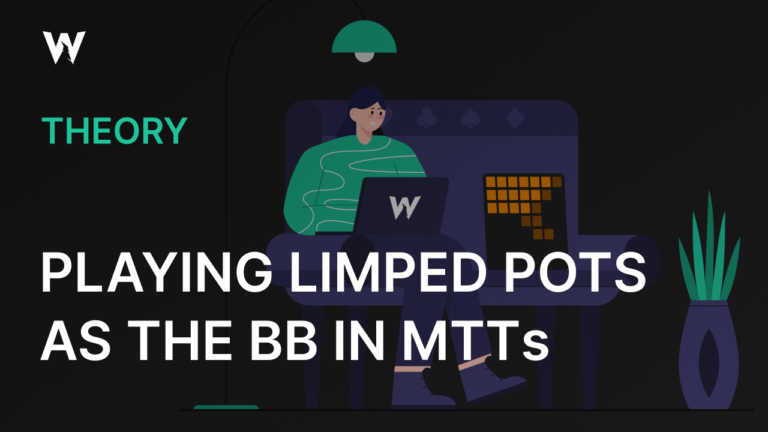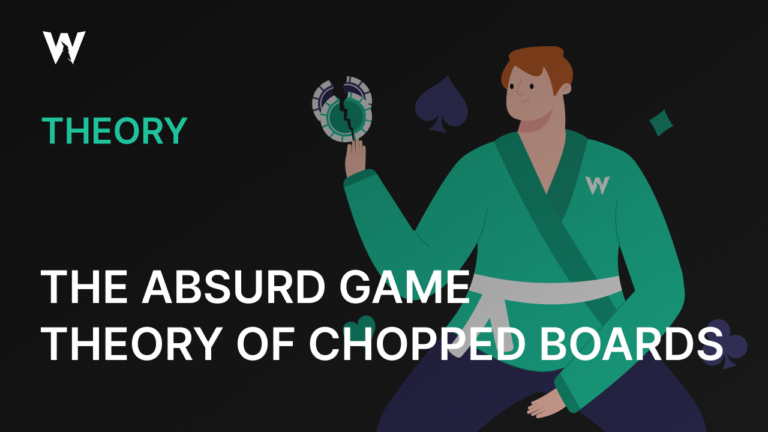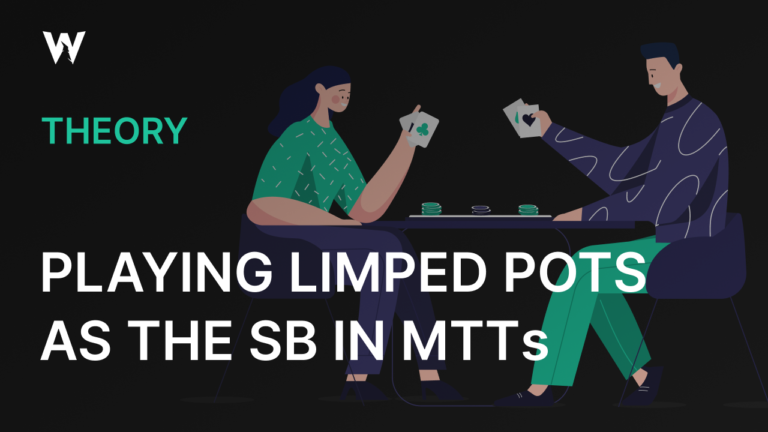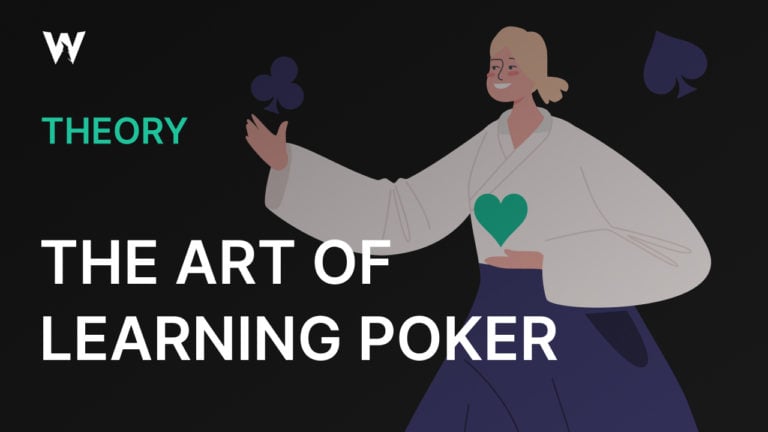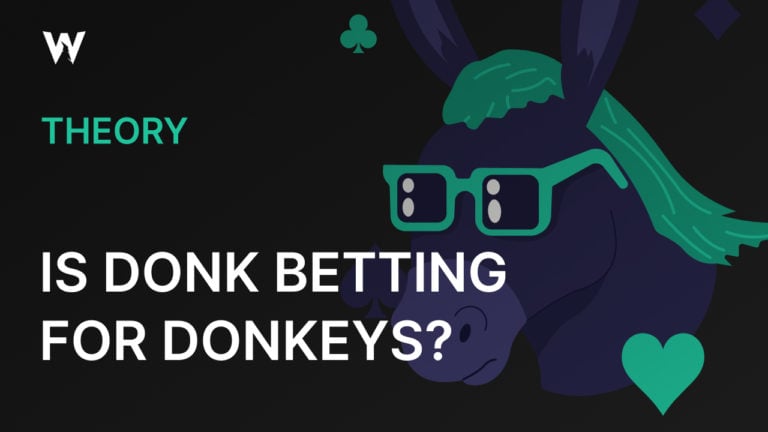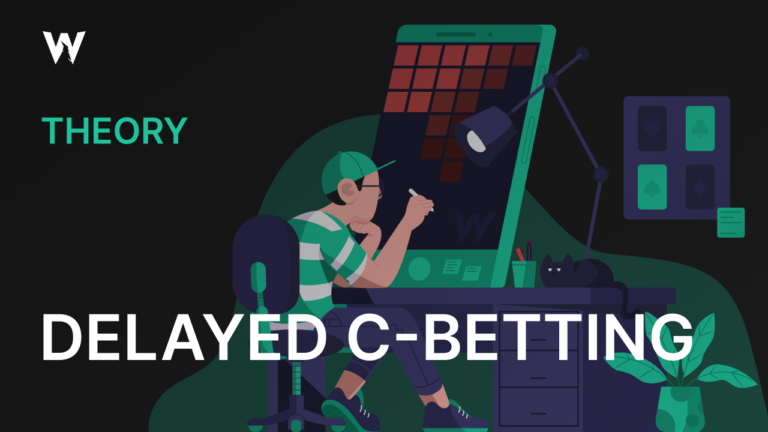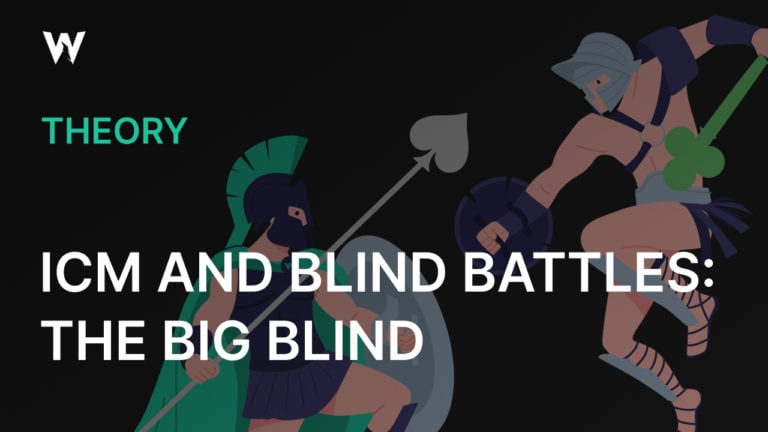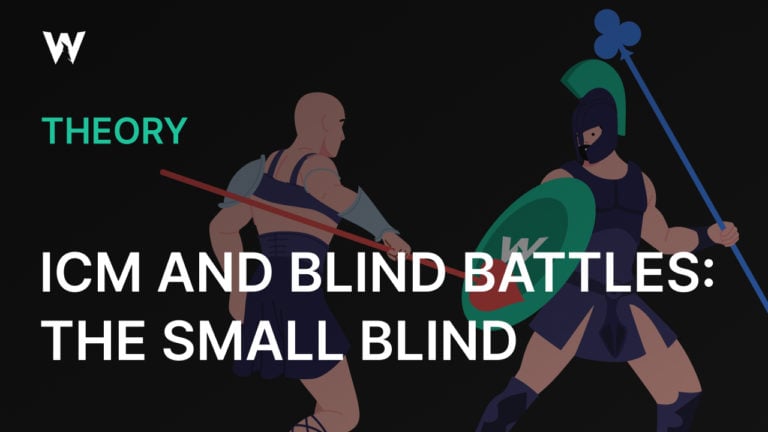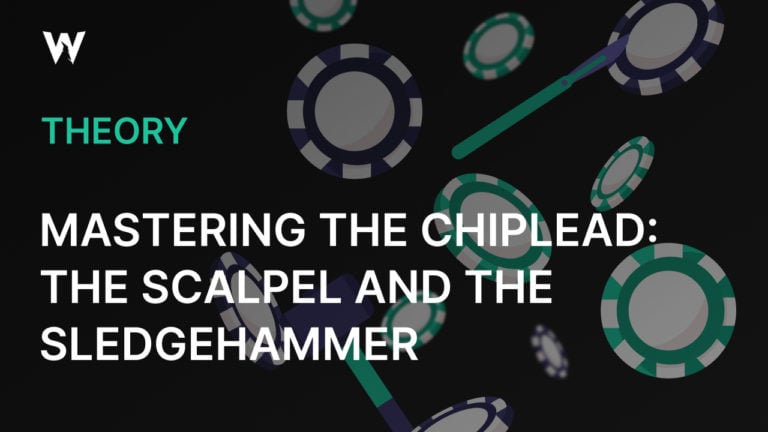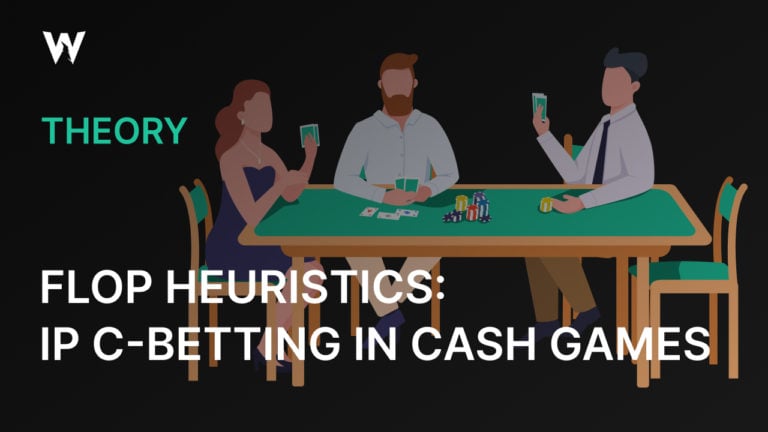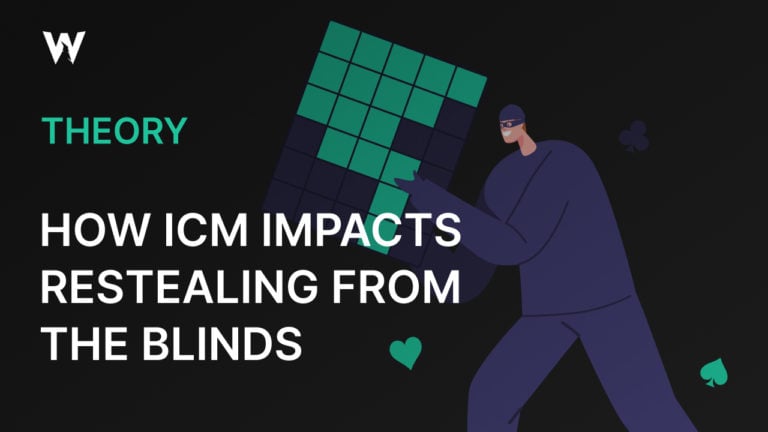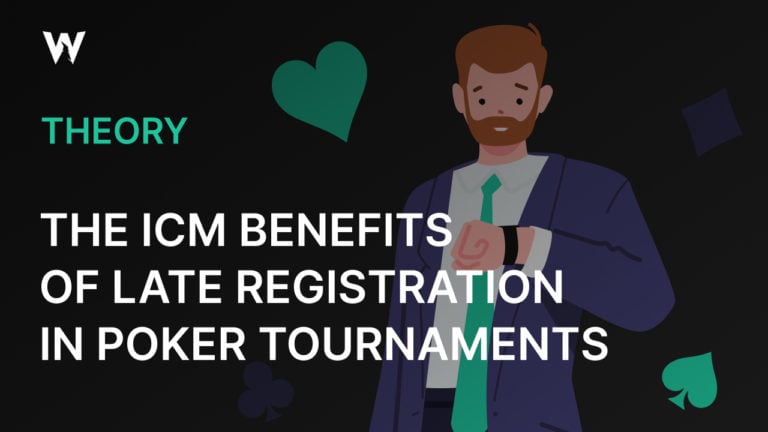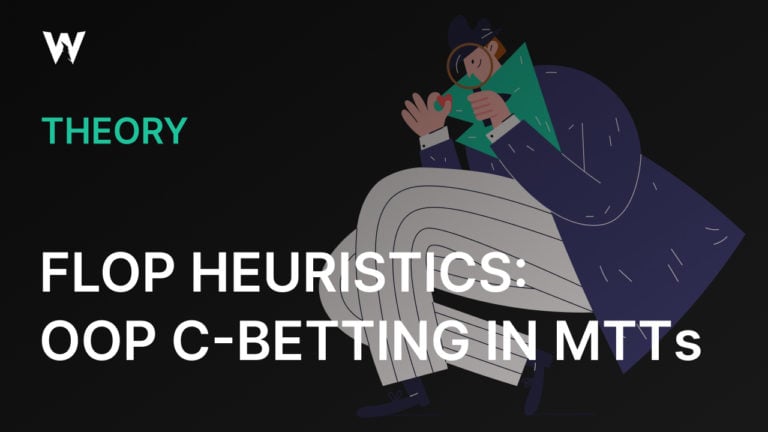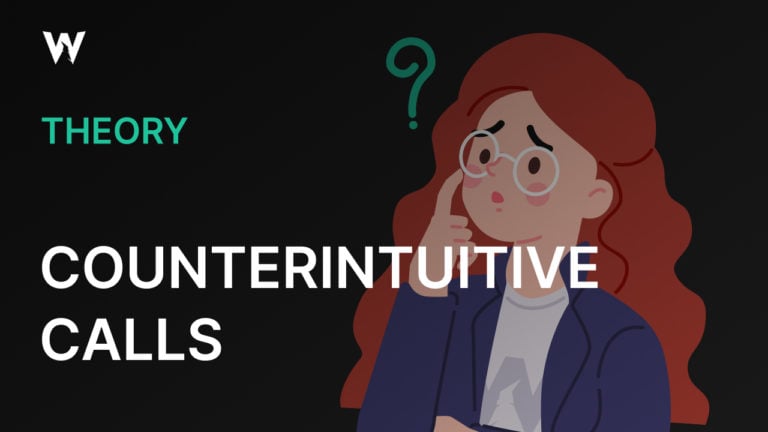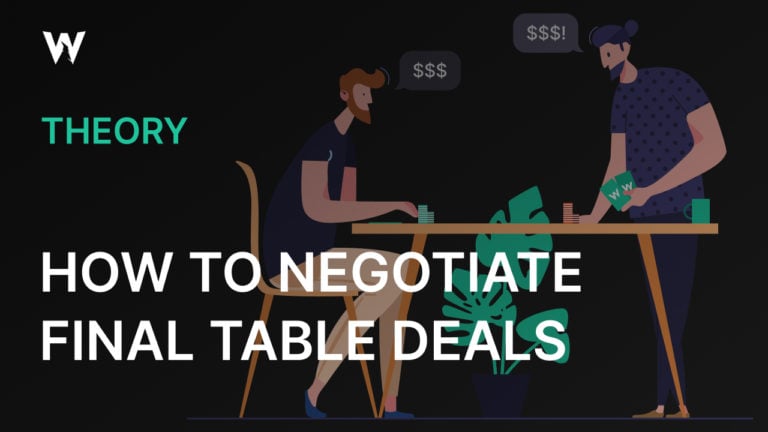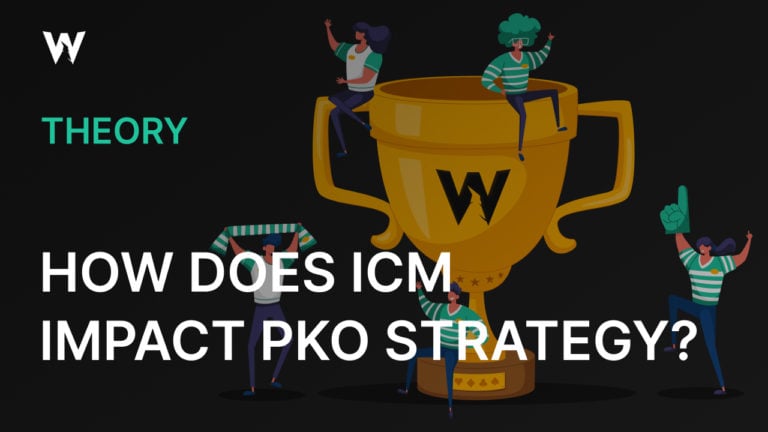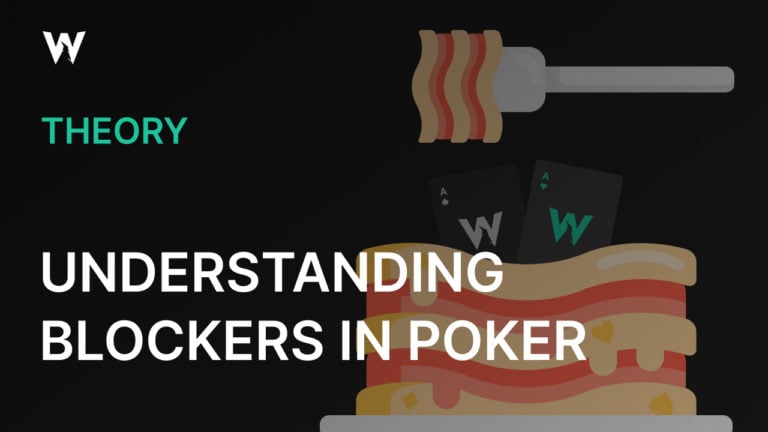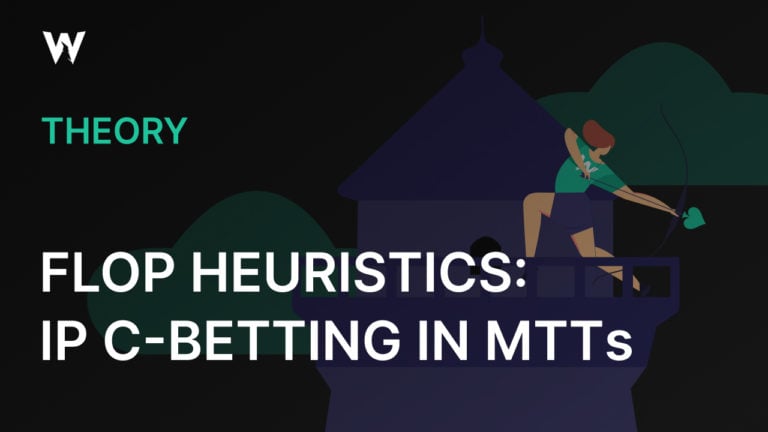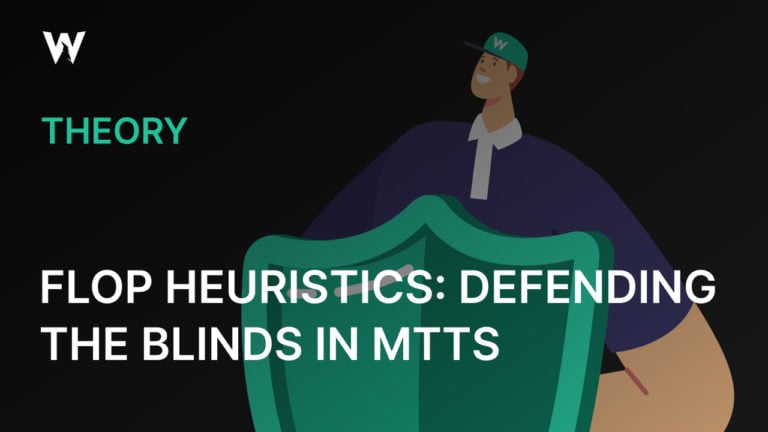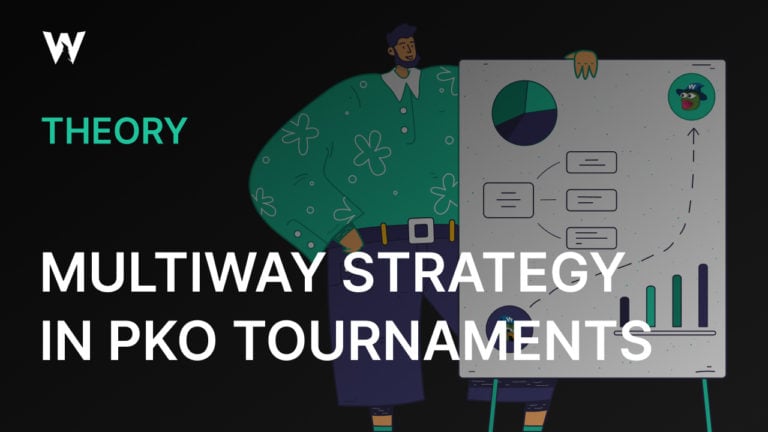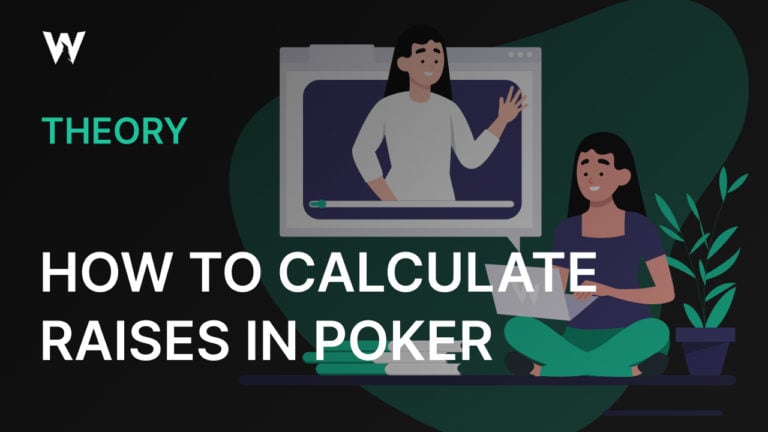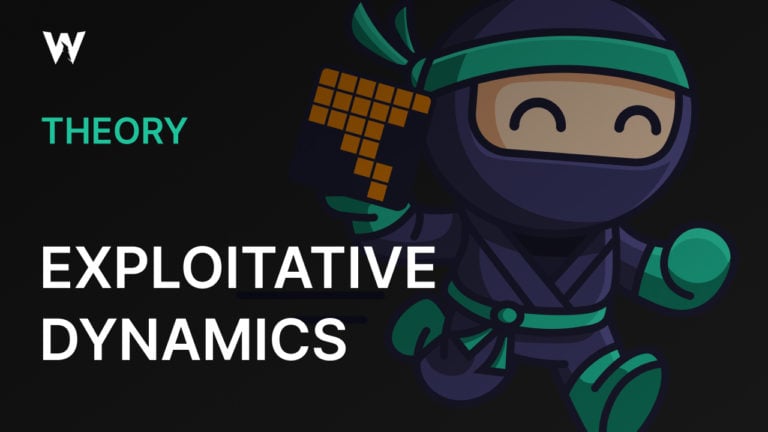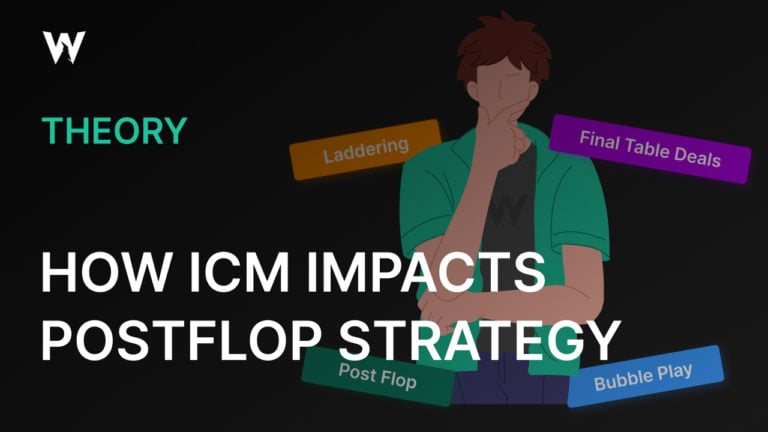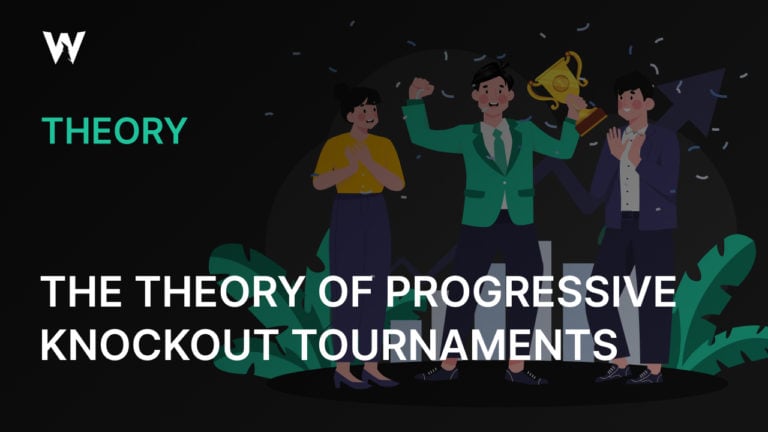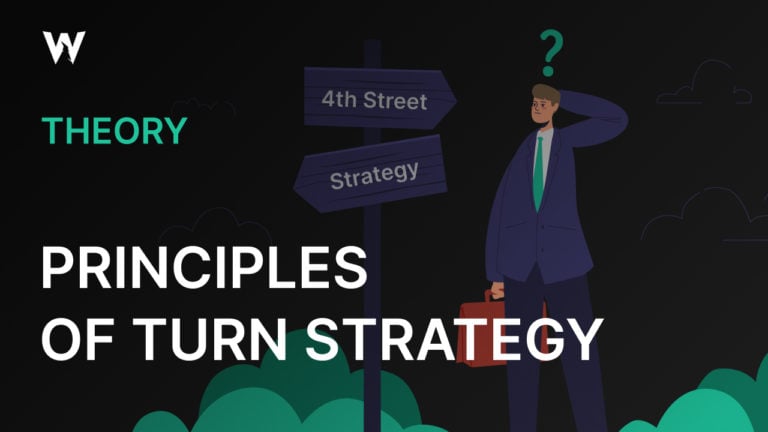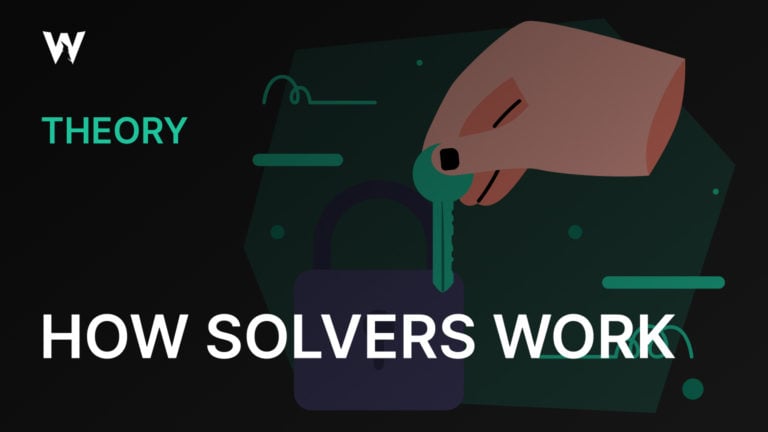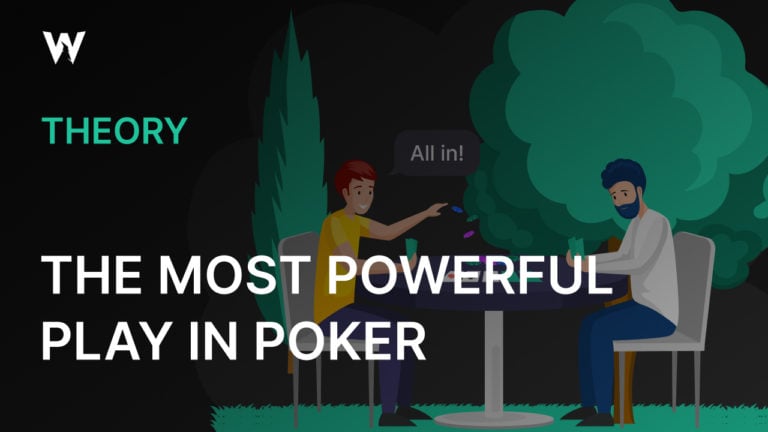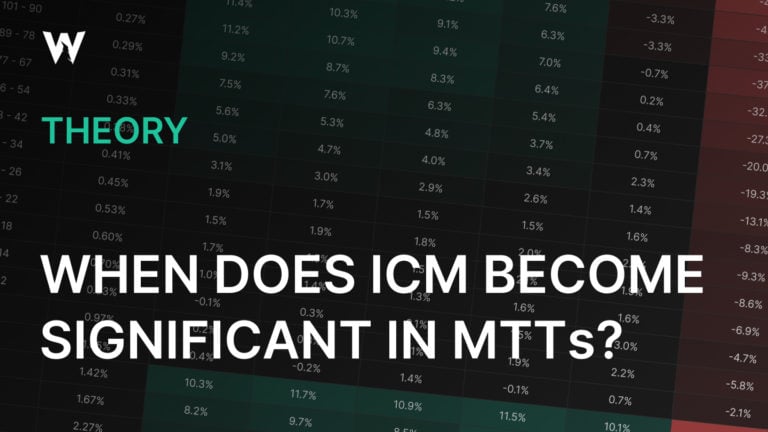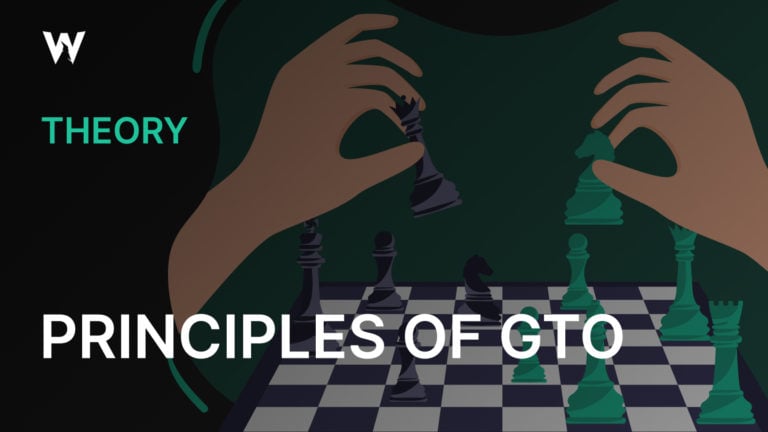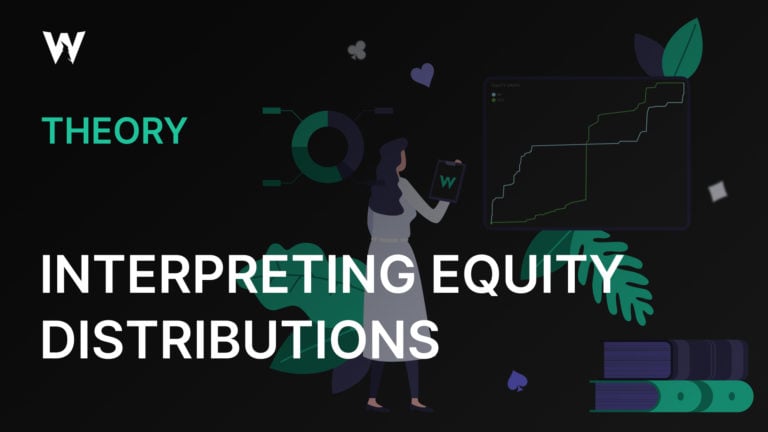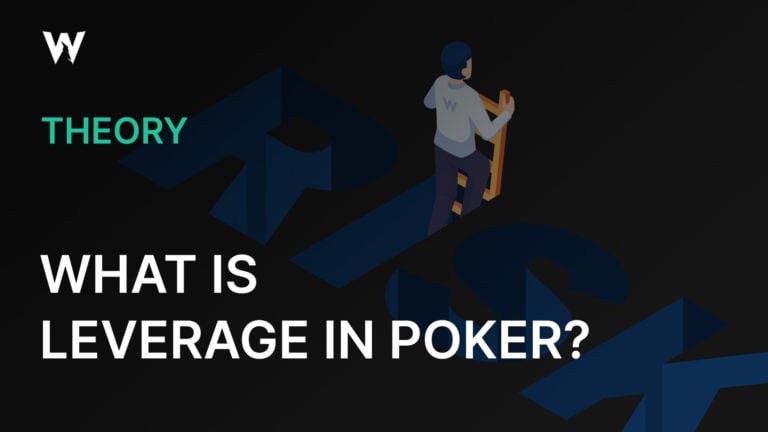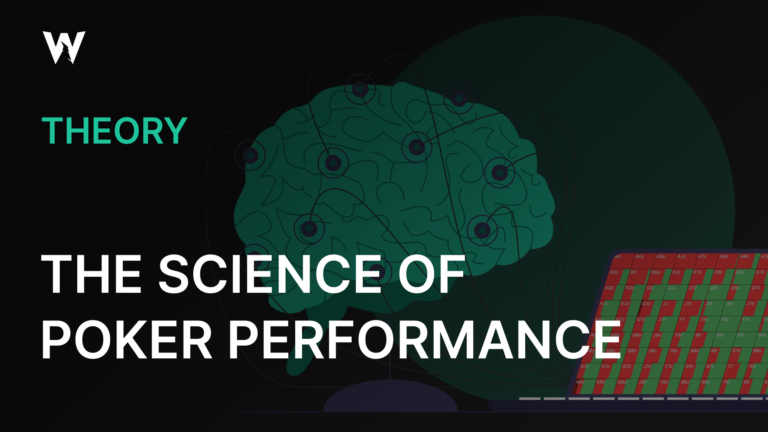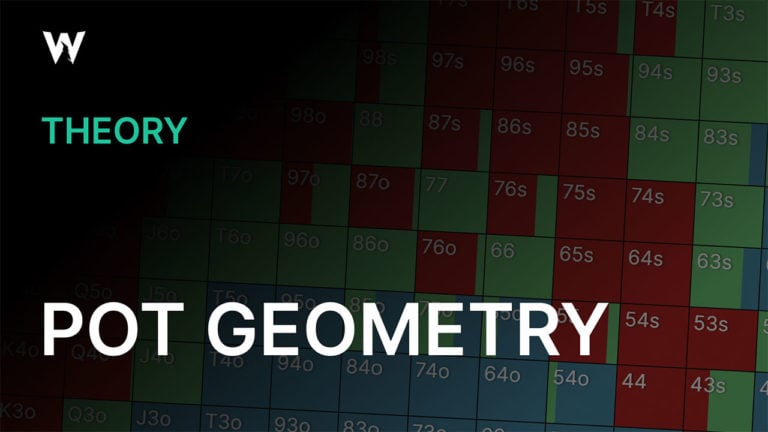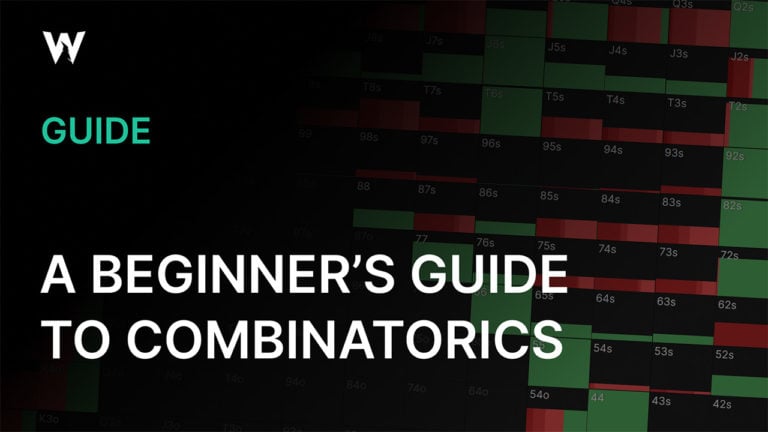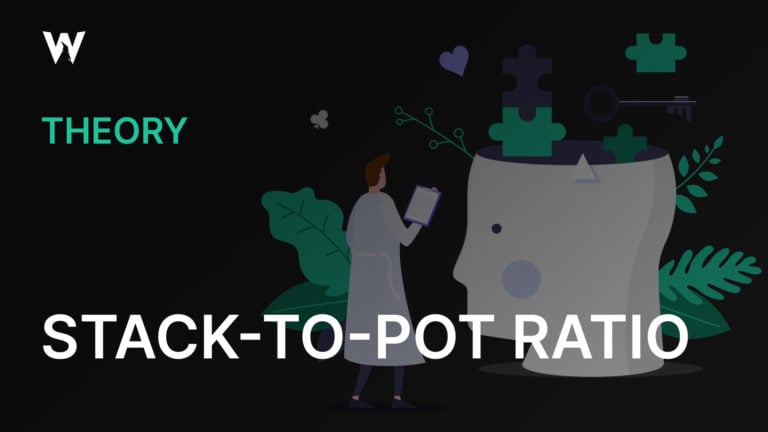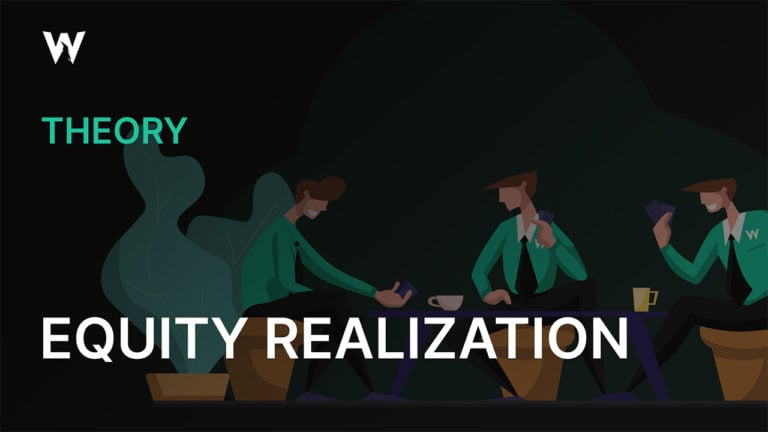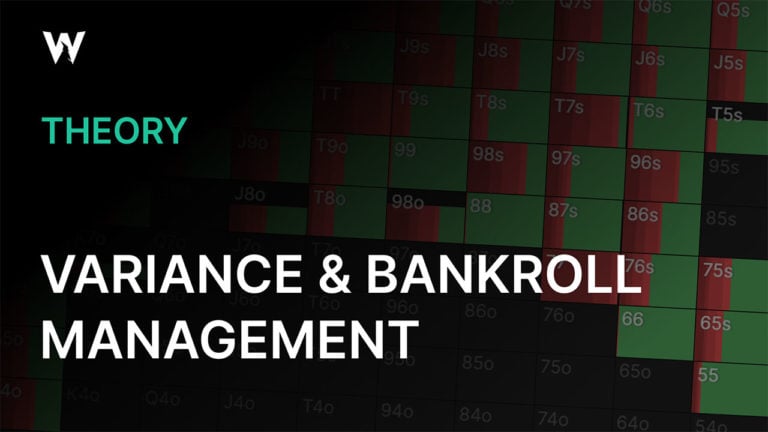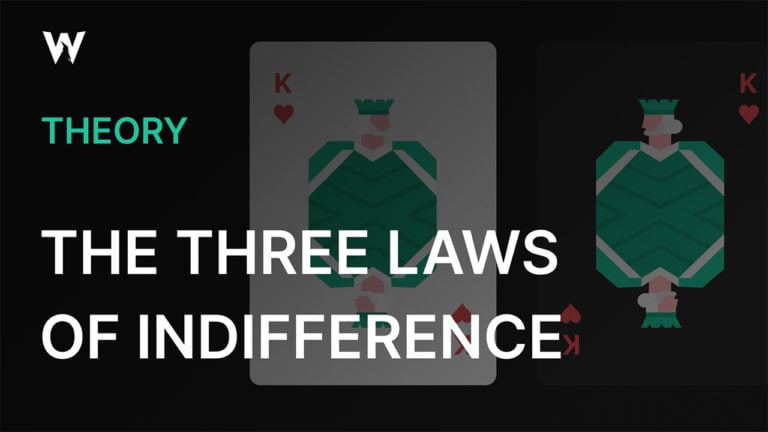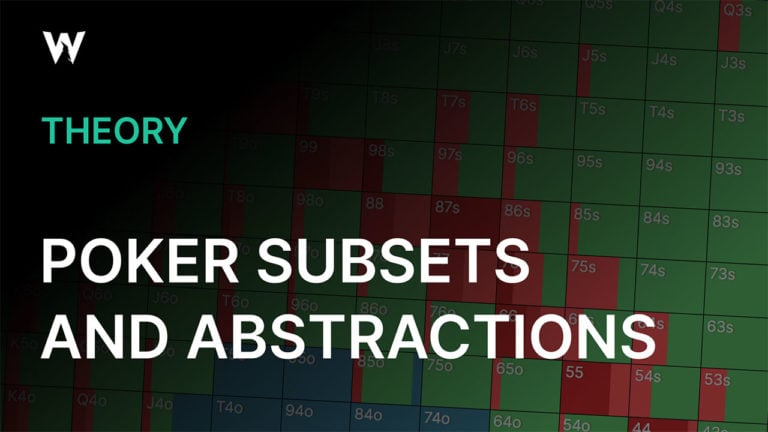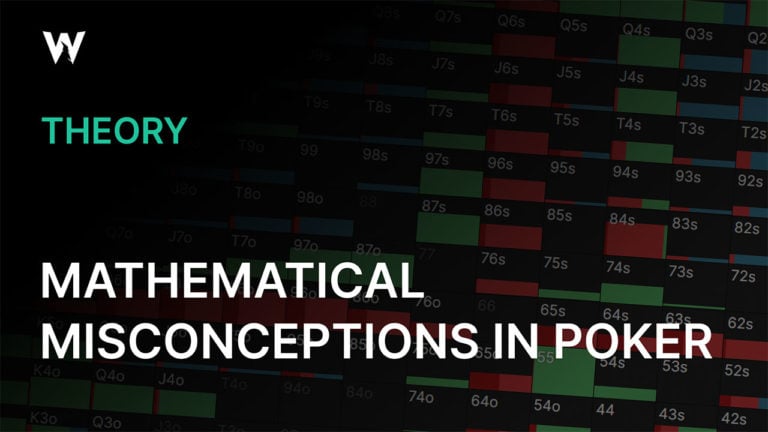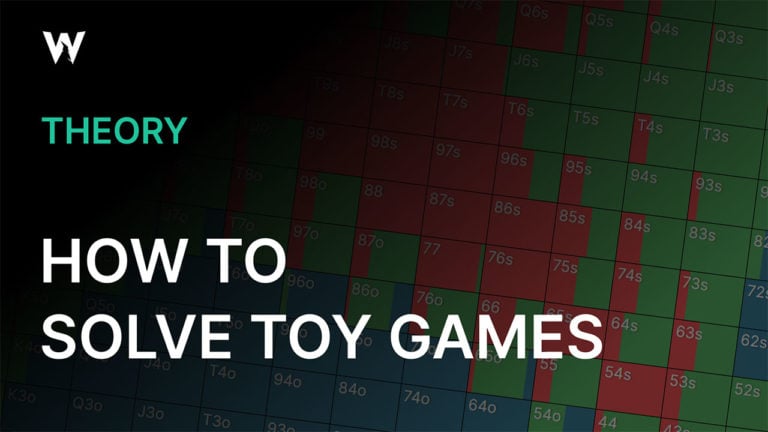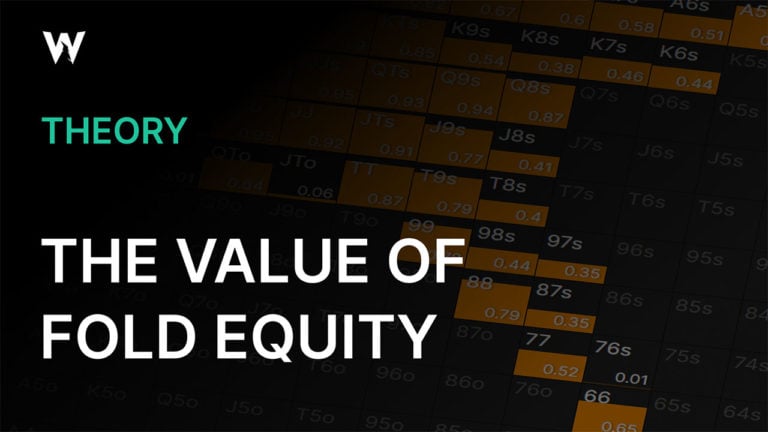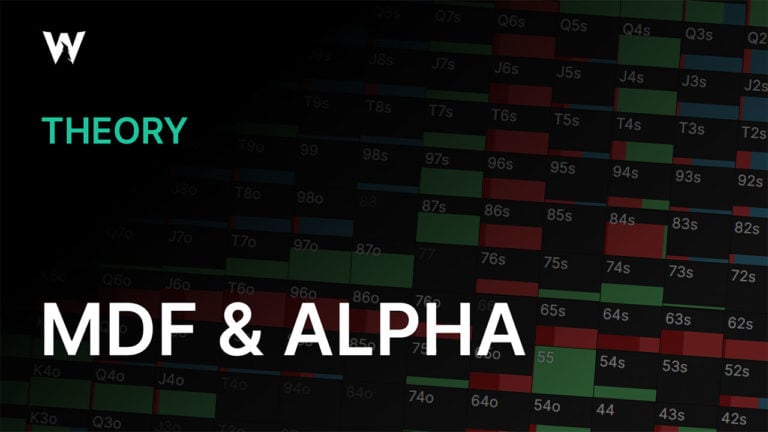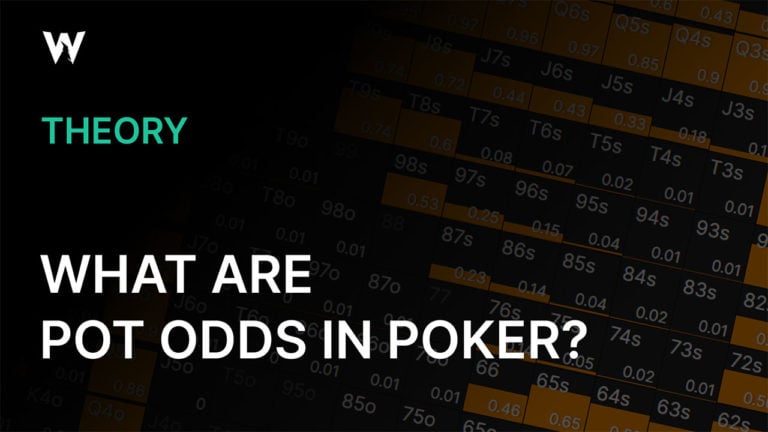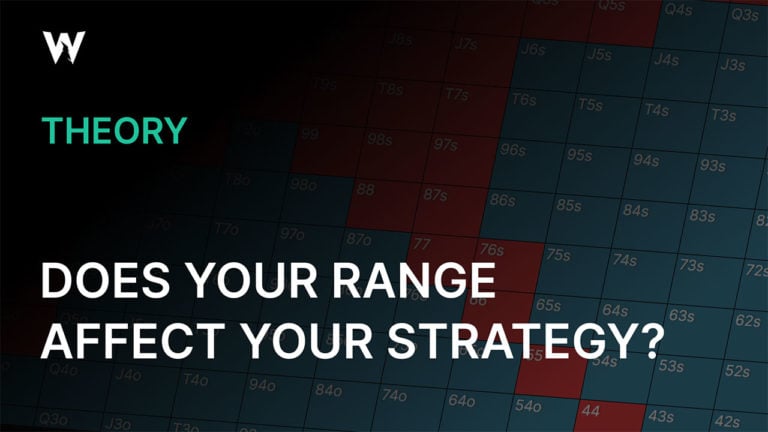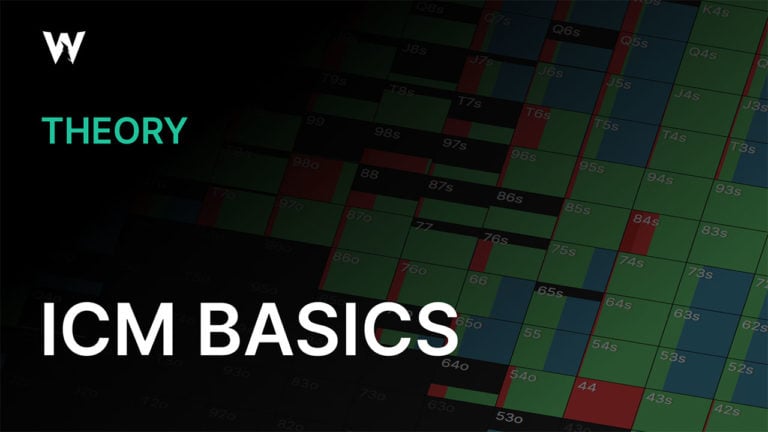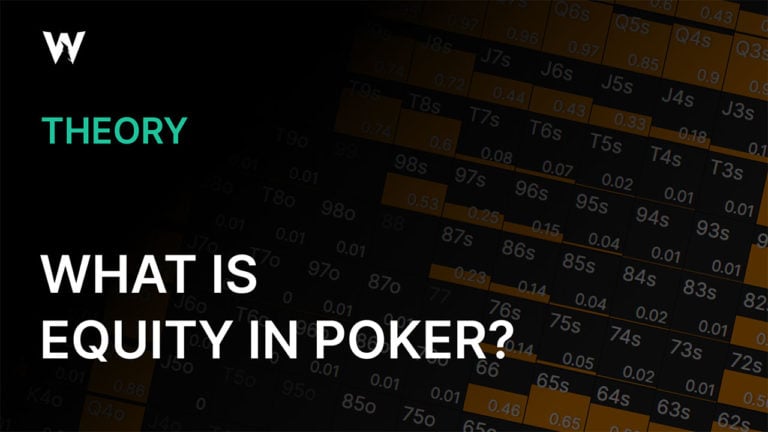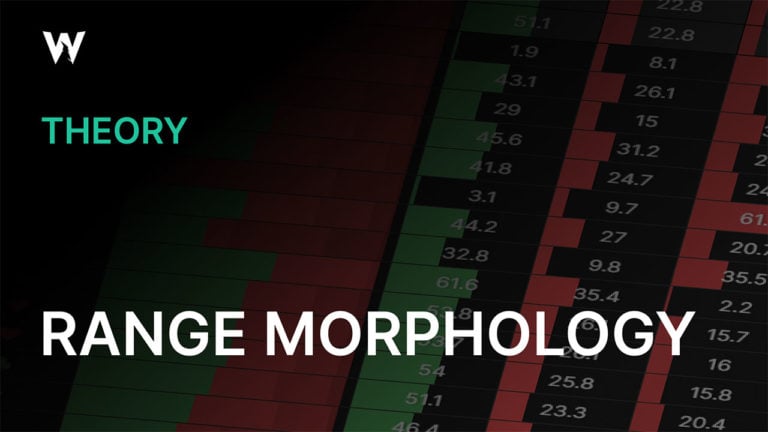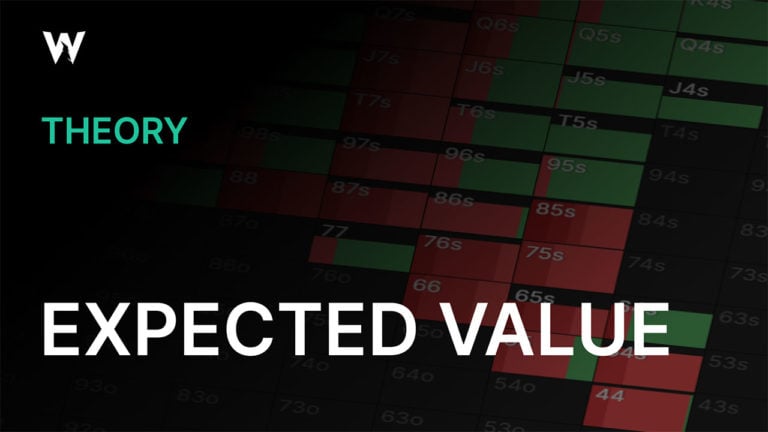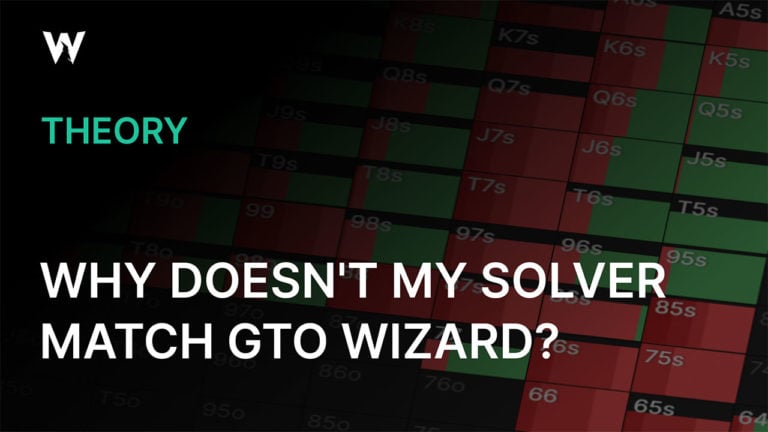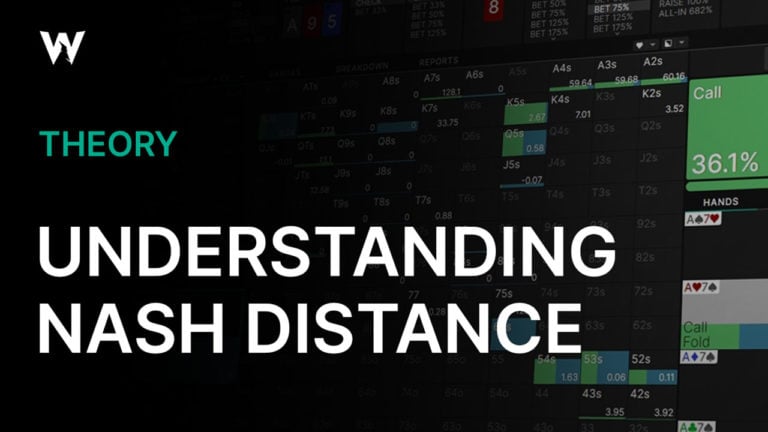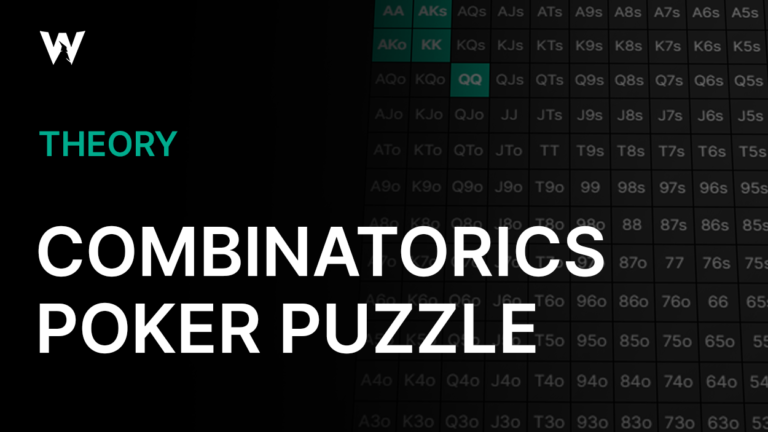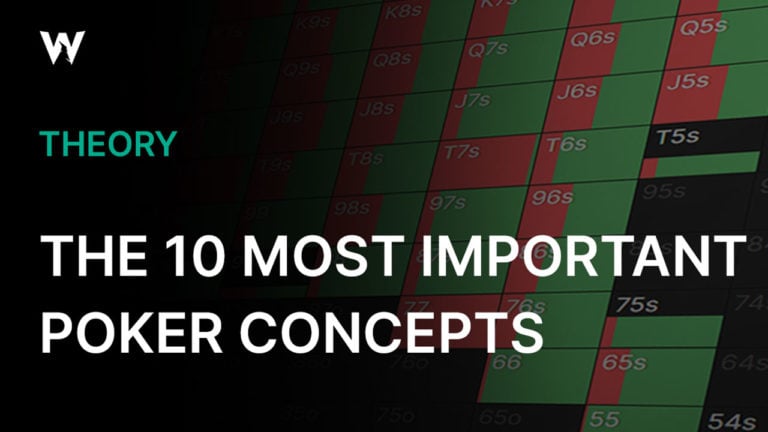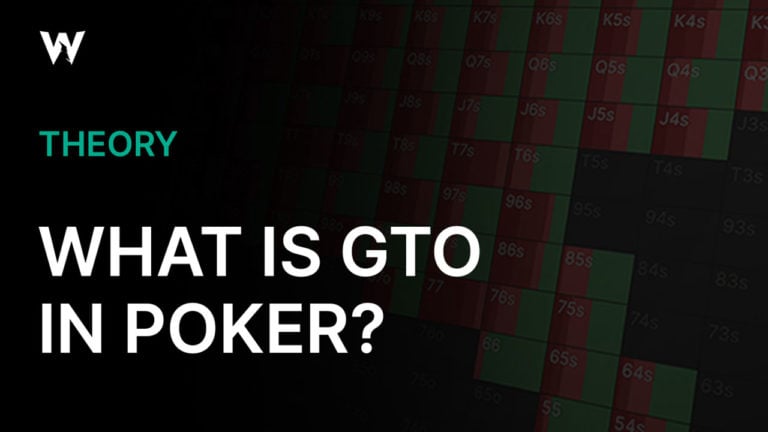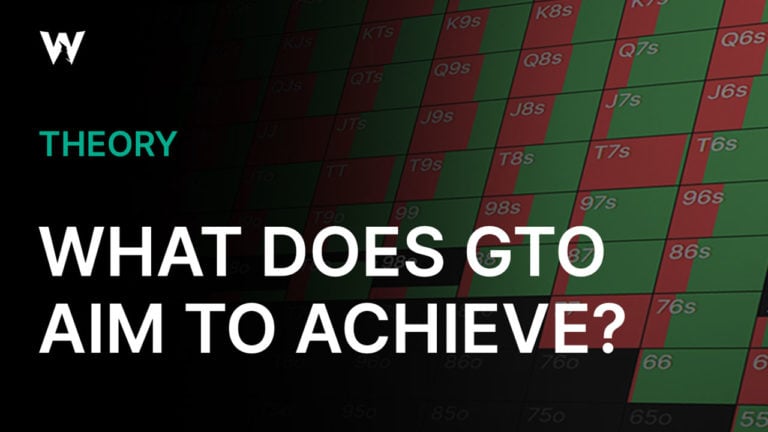Register Late, Win More:
The Math Behind Smarter Tournament Entry
In previous articles on tournament late registration of the GTO Wizard Blog, my colleagues have detailed how the increasing ICM value of chips as players bust leads to adjustments in optimal strategies and consequently, how the ICM increase in the value of a late registrant’s stack can boost win rates.
Some of the biggest takeaways from these earlier articles include the following:
- Every elimination from a regular (non-bounty) tournament increases the ICM value of all the other stacks still in play.
- Every new registration lowers the ICM value of the stacks of those already playing.
- A late registrant might have a slightly lower chance of winning the event outright, but they have an improved chance of turning a profit.
- When entering the tournament at a shallower stack depth to play, that results in a lower stack-to-pot ratio than when we start playing earlier with many more big blinds. This makes our decisions easier.
The immediate positive impact on ROI of late registration can be quite significant. This article analyzes real-world tournament examples to study two variables related to late registration, with a focus on maximizing profitability:
- Timing of registration – When is it most profitable to register late?
- Types of games – Which formats and structures are the most profitable for late registration?
To Late Register, or Not To Late Register
Many coaches I’ve studied with have shared that they believe that the players they work with tend to have a higher overall ROI in tournaments they play from the beginning. These early birds maximize the playtime with the weakest players, many if not most of whom will likely have busted before the registration period ends.
However, a lot of players who bust early also have the tendency to re-enter, given that most tournaments allow for and try to incentivize such behavior. In addition, the ever-increasing nature of tournament blinds means that the average stack size in terms of big blinds decreases as the tournament progresses.
Regular tournament players know that, no matter what their skill level is, they will sometimes bust a tournament early. Other times, they will chip up early and maintain that lead through the bubble and even to the final table. It’s also quite common to build up a stack early, only to blind down to a below-average stack by the time registration closes. In the latter cases, we may have been playing for hours only to have the same or slightly bigger stack size than someone who just entered.
As there are benefits and drawbacks to both registering early and late, it’s mostly a matter of preference, individual skills/style of play, as well as the particulars of a tournament situation that will determine whether or not late registration is (more) profitable. I frequently choose to enter tournaments at the last possible moment (max late reg) for a number of reasons:
- Minimize (or eliminate) the number of re-entries I play
- Minimize the number of hours it takes me to finish a tournament
- Boost my overall ROI with the immediate increase in the value of my starting stack
- Increase my hourly win rate by playing more tournaments in a session
- Reach final tables more quickly and thus earlier in a session when I have greater energy and focus
- Take advantage of overlays, which add additional value
Usually, the longer late registration is open, the shorter a new starting stack is in terms of big blinds.
In the MTTs I regularly register late, my starting stack is most often worth between 8–15bb.
The short stacks and the fact that we may only get to play one hand before busting make it not appealing for many players. I don’t mind, though, as it allows me to register more tournaments or end a session early if I bust right away. I also appreciate the simpler nature of pre- and postflop strategies at these stack depths, especially since I have the opportunity to study and drill this spot so that I can play it as optimally as possible. If you read on far enough, you may stumble upon the GTO Wizard drill that I personally use to practice for my late entries 👀
The Benefits and Drawbacks of Late Registration
Methodology
I wanted to see for myself how various factors impact the profitability (or unprofitability) of late registration, so I collected real-world data from four tournaments I randomly selected one day on a major poker site. Two of the samples are regular MTTs, one is a PKO, and the last is a satellite.
In order to calculate the value of a starting stack at the end of the late registration period, I took snapshots of all of the tournament stacks immediately after late registration closed. I then entered all of the stack sizes with the tournament prize pool data into an ICM calculator, which generated the $values (according to ICM) of all of the stacks at that point.
The late registration ICM value of the starting stack is then compared to the entry fee, minus the rake. Note that the ICM value of a starting stack at the start of the tournament is equal to the entry fee minus rake.
Please be aware that while the data collected below illustrates some of the benefits and drawbacks of late registration, these are only a small sample of examples. The structure of every tournament, as well as at what point the late registration period ends, can vary significantly. These factors all impact how much value a late registration starting stack gains or loses compared to the ICM value of a starting stack at the beginning of a tournament.
Analysis per Game Format
Regular Tournament Late Registration
In the late registration data for these four sample tournaments, we can see that the regular (non-bounty) formats (incl. satellites) have an immediate, positive ROI boost from max late registration. This stems from the fact that every time a player is eliminated from a regular tournament, the ICM value for all stacks increases—not just for the winning player.
In the above samples, the actual ICM value of a starting stack at the closing of registration in the non-bounty tournaments was significantly higher than the value of a starting stack at the beginning of the tournament, even though a starting stack may only count 8 or 10bb at that point.
Whenever someone registers at the start of a tournament, there is an immediate effective net ROI loss: the value of the rake. A player who registered for the $10 satellite in the above example actually paid $11, with $1 going to the operator, or 10% of the actual entry fee that goes into the prize pool. Thus, when combining these two observations of starting stack value and the impact of rake on it, the resulting effect can be described as follows:
A player who max late registered any of the tournaments, except for the PKO, either negated or beat the rake of the tournament upon registration.
The data also indicates a correlation between the percentage of the field remaining and the ICM benefits of late registration, as we would expect to see in theory. While there is theoretically always a tournament equity boost that comes with late registering a regular MTT, the amount of the ICM boost will correspond to the percentage of the field remaining. The closer we are to the ITM bubble, the more likely we are to cash, especially when late registering with a very short stack. Hence, the starting stack in the $15 regular MTT has an over 2% greater ROI than the $50 MTT at the end of late registration, as only 35% of the field remains vs. 48%.
The closer to the ITM bubble a late registration positions us, the more likely we are to cash, and so the greater the benefit of late regging.
PKO Tournament Late Registration
In the PKO sample, however, there would have been an immediate -14% ROI loss upon max late registration. In a PKO, a player’s regular prize pool equity increases as players are eliminated due to ICM, similar to a regular MTT. However, the decrease in the bounty prize pool every time a player is eliminated has a much greater negative impact on our overall tournament equity than the ICM benefits of the regular prize pool, unless we are extremely close to the ITM bubble. However, it would be unlikely (if ever) to find a PKO that allowed late registration close enough to the money bubble for that to be possible. So, the takeaway here is that:
Unlike in a regular MTT, the overall value of our stack decreases rather than increases every time a player is eliminated, except for when we are the recipient of the chips and bounties of the eliminated player.
Satellite Tournament Late Registration
The ROI boost in the satellite is even greater, with late registration closing while only 24% of the field remains.
However, there is another major factor that contributes to the huge 57% ROI increase of late registering the satellite: the flat nature of satellite prize pool payouts. ICM risk premiums tend to be much higher on the bubble of satellites than in regular tournaments because there is no benefit to winning all the chips, unlike in a regular tournament where more of the prize pool is concentrated in the top few spots. A player who wins a ticket in a satellite with 1bb wins the same prize as a player with 100bb. A min-cash at the end of a satellite (assuming the final top tickets/payouts) is also the max win, and it is usually 5 or 10x the buy-in. In contrast, a min-cash in a regular tournament usually amounts to 2x the buy-in or less.
The prize pool payout structure (with its higher and equal value of the min-cash), combined with late registering closer to the ITM bubble, leads to the huge (57%) ROI boost in the satellite tournament.
Never Give Up: The Last Chip Is the Most Valuable!
This brief analysis of sample MTT data demonstrates a fundamental principle of ICM in action: the deeper we are in the tournament, and specifically the higher the ICM pressure, the more the chips we lose are worth, both in an absolute sense and relative to the value of the chips we win.
If a starting stack contains 100bb at the start of the $50 tournament above, those 100bb are worth $50 or $0.50 per big blind. But if we max late register this same tournament with roughly 37.5% of the field remaining, the ICM value of our stack is now $54.68, which is $4.68 more than if we registered at the start of the MTT. In addition, with the starting stack in this $50 tournament converting to 8bb at the end of late registration, our chips are now worth $6.84 per big blind (= $54.68 / 8bb).
In this way, ICM provides mathematical proof for the poker adages of “never give up” and “a chip and a chair.” Far from being worthless, our last few big blinds are often worth a substantial amount, even well before the money bubble.
It can be tempting, especially when sitting in the BB with 6, 5, or 4 big blinds, to call off wide when our opponents jam on us, hoping to double or triple up to a more “playable” stack. But this can be a costly mistake if the potential reward isn’t high enough to risk our oh-so-precious last few chips.
Training To Win When Registering Late
The upside of registering late with only a few big blinds is that poker strategies are simpler the shorter our stack is. And luckily, we can practice these spots with the GTO Wizard trainer.
This is the drill that I use to practice how to play the usual short stacks I receive when I max late register a tournament. This drill allows us to play against the trainer in common spots in the post-late registration period when the risk premiums for short stacks are around 3–5%.
The drill simulates how we should play the most common starting stack sizes for late reg, which are between 8–25bb, in the context of similar asymmetric stack size distributions we encounter when we late register. Often, when we register at the last moment, we will be the shortest or one of the shortest stacks at a table full of bigger stacks, which can significantly impact how we play our ranges. This drill, in my experience, reasonably simulates the real-world scenarios I encounter most of the time when entering a tournament at the last possible moment.
Conclusion
In the real-world sample of tournaments used for this article, entering at the end of late registration produced an ICM equity boost of between 9–12% in the regular, non-bounty MTTs where 37–48% of the field remained. That is enough to cover, or almost cover, the negative ROI impact of rake in most tournaments. Maximizing this potential benefit of late registration can boost the profits and hourly earnings for winning players, as well as potentially turn a player with a -5% ROI into a +5% winning player.
There is always a risk that, when we max late register, we will bust quickly from the tournament. But even one double-up is sometimes enough to get us up to an average stack size. By focusing on optimal short stack strategy during the stage of the tournament we register into, we maximize our chances of realizing the extra equity we gained just from registering late. This, combined with the potential to increase the volume of tournaments we play and our hourly win rate (due to spending less time playing each tournament), can increase our overall ROI substantially.
Wizards, you don’t want to miss out on ‘Daily Dose of GTO,’ it’s the most valuable freeroll of the year!
We Are Hiring
We are looking for remarkable individuals to join us in our quest to build the next-generation poker training ecosystem. If you are passionate, dedicated, and driven to excel, we want to hear from you. Join us in redefining how poker is being studied.



